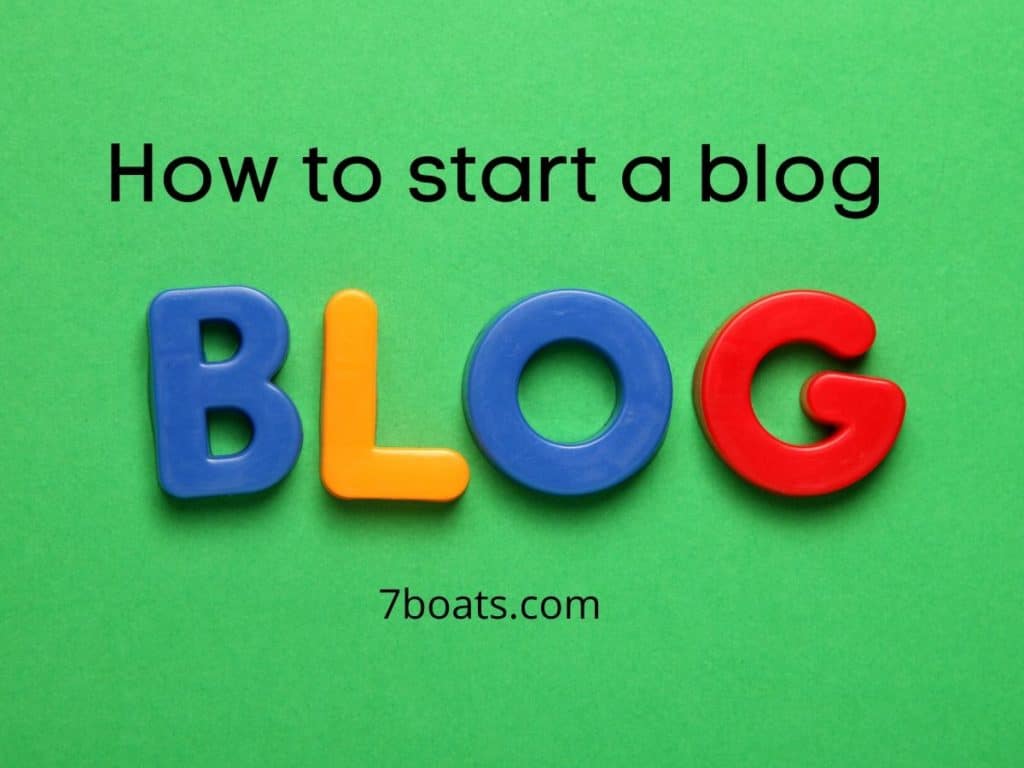
Blogging Guide & Best Blogging Tips: Hundreds and thousands of bloggers take to the online world every single day. Some to voice their opinions, some to disseminate information while other take up blogging as ghost writers for companies. Their idea is to promote and market products and services. In this post, we are going to talk about all the kinds of bloggers in general. There are some specific tips for each category of bloggers, depending upon their objective of blogging.
So you want to start a blog, but you’re not sure where to begin? Don’t worry – you’re in good company. Millions of people around the world have already taken the plunge into the world of blogging, and many more are joining their ranks every day.
The first thing you need to do is choose a blogging platform. This is the software that will power your blog and host your content. There are a few different options to choose from, but the two most popular are WordPress and Blogger. Once you’ve decided on a platform, you’ll need to choose a domain name for your blog – this is the URL that people will use to access your site. Once you’ve registered your domain name, you can set up your hosting account and install your blogging software.
Now it’s time to start creating content! What kind of content do you want to write? Do you want to share recipes, write about your travels, or give fashion tips? Whatever topic you choose, make sure it’s something you’re passionate about – readers will be able to tell if you’re not sincere, and they won’t stick around for long. Once you’ve decided on a niche, it’s time to start writing posts and promoting your
How to start a blog
Step by step guide to start a blog.
Choose a right blogging category
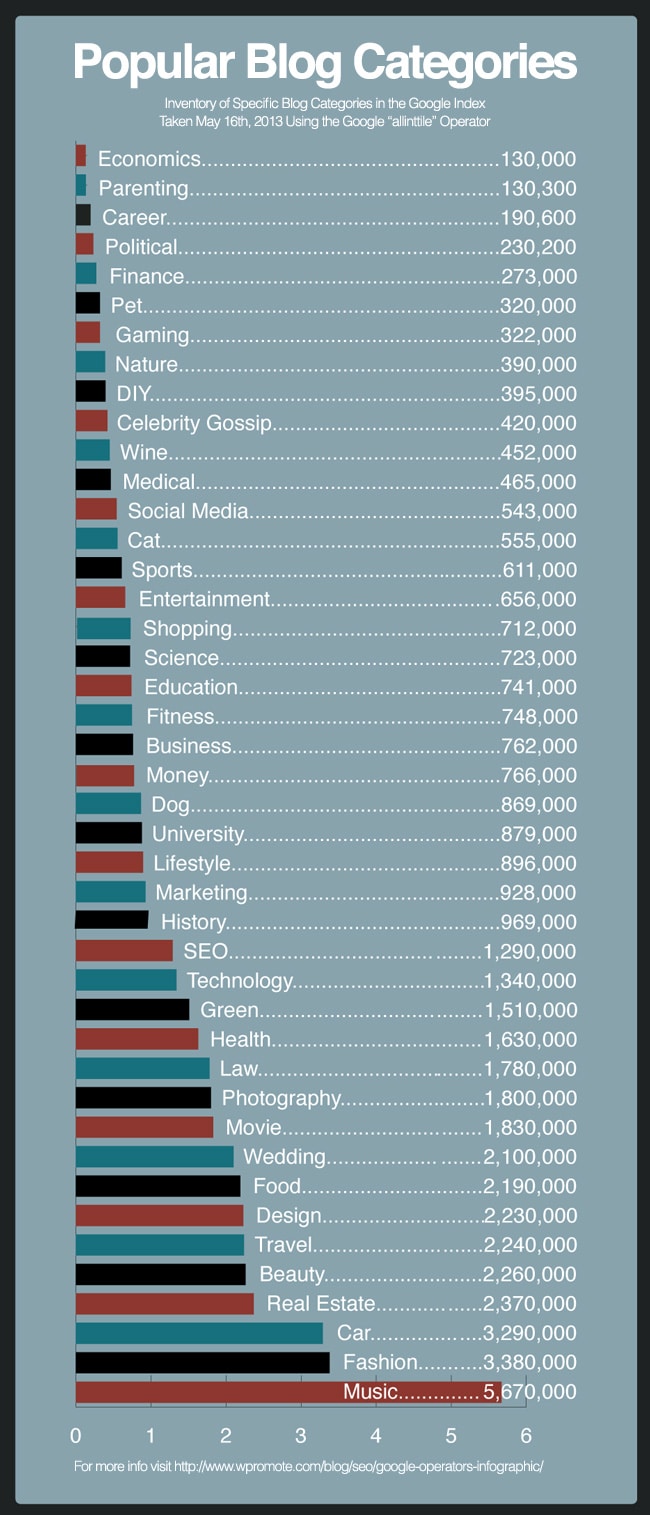
The first step for all newbie bloggers will be to choose a right category or niche for their blogs. In my opinion, do not jump into everything at once in beginning. Pick up a specific niche that you have expertise or skills and you will be passionate about to share your voice with the world.
Some popular categories are Personal finance, Fitness, Online business, Investing, Productivity, Real estate, Careers, Education, Freelancing, Technology & Entertainment. So research & do your homework well before moving to the next step.
Think of a blog name & Find a domain name
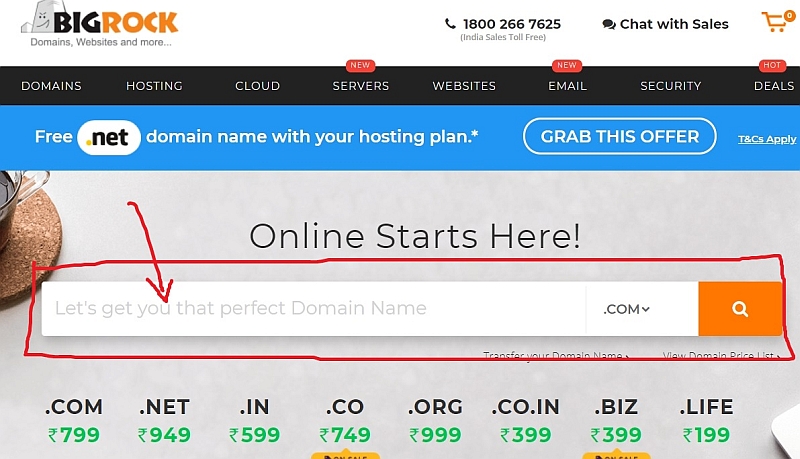
I will not recommend free blogging platforms if you are really serious about your brand. So you should have your own website. For that, if you want to establish yourself as a renowned blogger, you can take a domain name in your name or create a combination of your name and the category you will blog for. This is recommended.
Examples – NeilPatel.com or GaryVaynerchuk.com or JohnChow.com else you can select category specific names like ProBlogger.com or some brand specific names like ShoutMeLoud or Labnol. You can purchase domain name from godaddy.com or bigrock.com or domain.com
Buy a web hosting
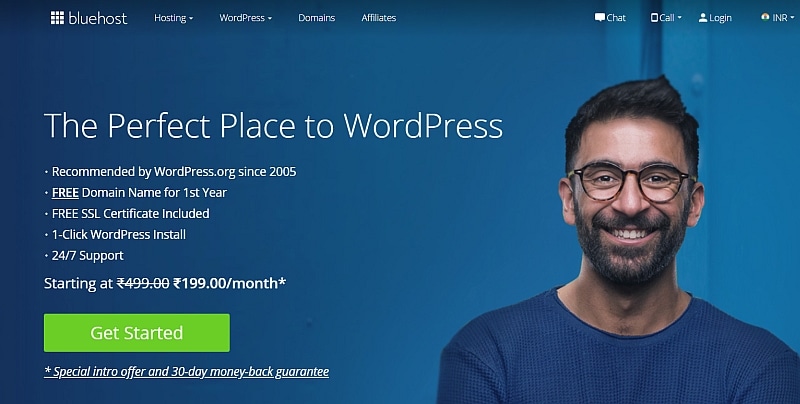
The next step comes to purchase a web hosting for your blog. Initially you can start with a good shared web hosting or WP hosting and later with increase of traffic to your blog you can shift to a VPS or Dedicated server with unique IP. VPS or dedicated sever or WP hosting will give you better safety and faster website speed. You should go with linux hosting. Some recommended hosting providers are BlueHost, DreamHost, Inmotion Hosting, Bigrock, GoDaddy, WP Engine, SiteGround etc.
Related reading: How to choose SEO web hosting
Map your domain name
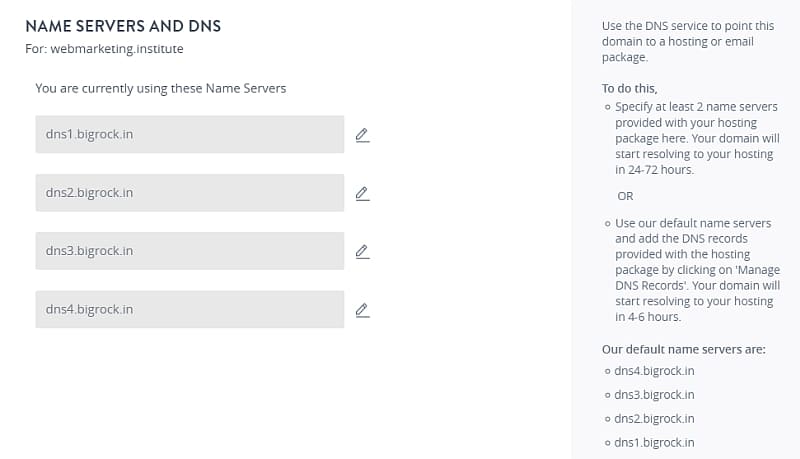
Once you purchase the domain name and web hosting, then you need to point your domain to your hosting server by mapping the name servers (provided by your hosting server) in your domain control panel in place of name server fields. Once done it usually takes a few hours (up to 72 hours) to propagate the DNS fully.
Install WordPress
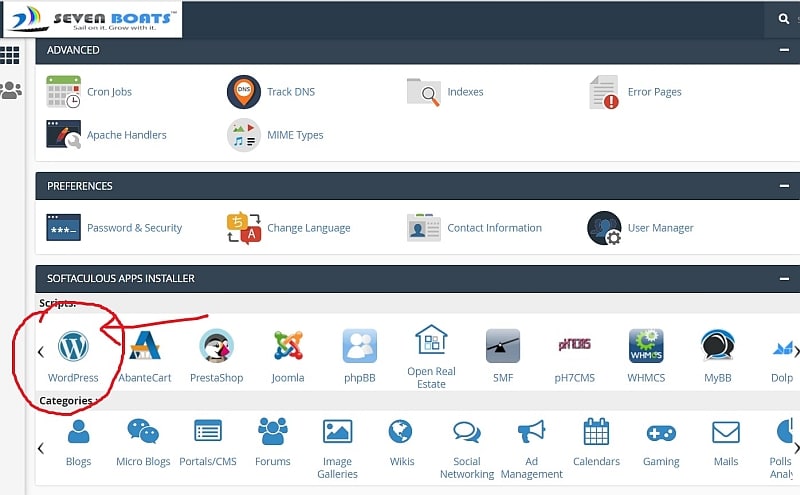
After mapping your domain name and web hosting server, you need to login to your cPanel or Plesk (or web hosting panel) and there you can find auto script installer like softaculous or fantastico and with one click you can install latest WordPress.org version on your root domain. You have now your self hosted WordPress blog ready with you.
Put your site on maintenance mode

After setting up the WordPress blog, install a maintenance mode plugin or coming soon mode plugin and put your website on coming soon mode. Start working on backend to design your blog.
Choose a WordPress theme
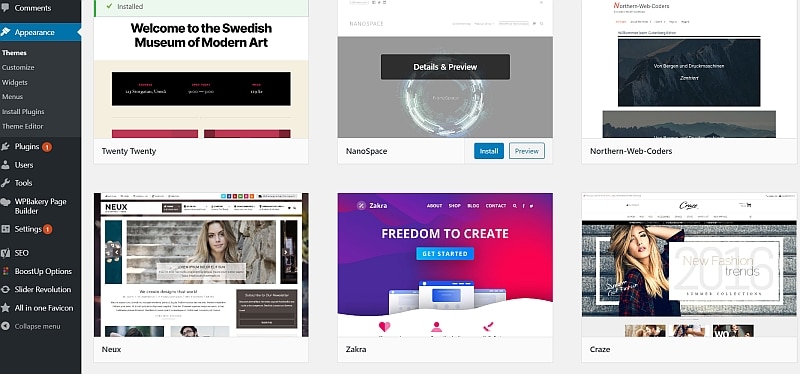
WordPress repository has a lot of free themes that you can select for your blog or else you can purchase a premium SEO friendly theme from ThemeForest.net. Install the theme by following the instructions. You can refer many available online tutorials on YouTube.
Install essential WordPress plugins & SEO setup
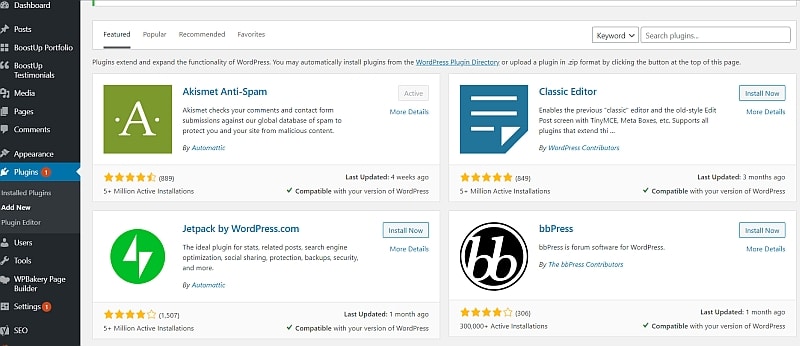
Once you are done with the theme installation for your blog, the next step comes installing essential plugins for your blog. Few of the essential plugins are – Akismet (for spam protection), Yoast SEO or Rank Math or All in One SEO (For SEO), Contact Form 7 (Contact form), WP Fastest Cache or W3TC or WP Super Cache (For Page Speed), MailChimp for WordPress (For email subscription), WordPress Popular Posts, Contextual Related Posts, Wordfence or Jetpack (For security), backWpup or vaultpress or updraftplus (For backup).
Install Google Analytics

Once you are done installing the essential WP plugin and SEO setup, next you need to create your Google analytics account and add your blog url and place the gtag.js code on every page of your website. WordPress has google analytics plugin that you can install and just paste the gtag code there. Within 48 hours you will start getting traffic data of your blog.
Verify your site with Google Search Console

Once you are done with Google analytics next step is to verify your site in Google search console so that you can get all webmaster data form your blog (Performance, clicks, average ranks, keywords, pages, speed, sitemap, links, other issues).
Write content – publish posts & pages
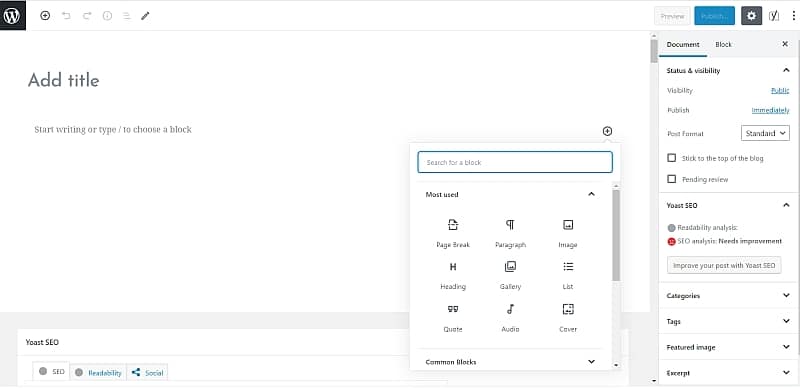
Now start publishing you blog pages or posts. You should focus on creating unique high quality content and create SEO optimized Title tags for your blog posts. Also don’t forget to interlink your relevant posts and pages within your content. Always maintain a content calendar and stick to your schedule. At least you need a new blog post every week and also monthly you need to update your 5-10 old blog posts.
Start setting up your email list

For bloggers, email marketing is very important to build loyal audience and to get in touch with them through emails regularly. For that, you need to create an account with any good email marketing platform such as mailchimp, constant contact, aweber, sendgrid and add a subscription form (Opt in form) or subscription widget to your blog.
Related reading: How to do email marketing
Start Online promotion & Build audience

Building audience for your blog is an important task for every blogger. You need to research your blog topics well. Maintain a strict weekly blog publishing schedule and don’t deviate from it. Always try to write something unique on the same topic that others have not covered yet. That will give you competitive advantage. Also link back to authentic trusted sources when you share your voice.
Always reply to your blog comments. You have to share your blog with social media platforms such as Facebook, Linkedin, Twitter after every blog posting. You can also mail other bloggers to link back to your post. Do not jump into posting another blog post until you try hard to share your previous blog post.
Related reading:
How to increase your website traffic
Social media optimization tips & lessons
Monetize your blog

Once your blog is ready and running well for at least 3 -6 months, you can think of monetizing it. There are many ways of monetizing a blog but the two best ways are affiliate marketing and selling info-products.
You can sell info-products such as e-Course (recorded Video courses as one time or subscription based). You can also sell affiliate products (digital or physical products) from your blog. You have to be careful about selecting right kind of affiliate products matching to your content of the blog and it’s target audience. Amazon, clickbank, commissionjunction (CJ) and there are many affiliate programs. You can also directly offer your expertise as service (As a consultant ) on your blog. Also you can join Google Adsense program to earn money from your blog.
Related reading: Top 5 ways to monetize your blog & top 20 ways to earn money online
How to add domain to your hosting by updating name servers (Video tutorial)
How to write a 500+ words blog post with AI content writer
Top 10 AI tools for blogging
Based on the search results and internet context, here are the top 10 AI tools that can greatly assist in blogging:
- Writesonic: Known for its ability to generate high-quality content, Writesonic is an AI writing assistant that has received over 5000 five-star reviews.
- Jasper: Jasper is a popular AI writing software for blog articles, marketing copy, Facebook ads, SEO content, clever headlines, video scripts, and more.
- Grammarly: Besides being a grammar checking tool, Grammarly also leverages AI to offer suggestions for tone, clarity, engagement, and delivery style.
- Surfer SEO: A go-to AI and NLP tool for SEO content writing, Surfer SEO helps optimize your content for better search engine visibility.
- Ink: Ink is an AI web content optimization platform that helps you write high-performing content to increase your website’s visibility.
- Article Forge: This tool uses AI to write high-quality, unique content about any subject in minutes.
- WordAI: WordAI uses artificial intelligence to understand text and is able to automatically rewrite your article with the same readability as a human writer.
- ChatGPT: Developed by OpenAI, ChatGPT can generate human-like text based on the prompts given to it, making it useful for drafting blog posts.
- CopyAI: An AI-powered copywriting tool that can help you with brainstorming ideas, writing blog intros, creating social media content, and more.
- Anyword: A predictive text tool that uses artificial intelligence to generate and optimize marketing copy.
These AI tools can significantly reduce the time and effort required for blogging, from brainstorming ideas and writing articles to optimizing content for SEO.
10 best blogging tools every blogger should know
Based on the search results, here are the top 10 blogging tools that can greatly assist in content creation, SEO, and marketing:
- WordPress: A popular content management system that allows you to create, edit, and manage your blog posts.
- Grammarly: An AI-powered writing assistant that helps correct grammar and spelling mistakes, improve clarity, engagement, and delivery style.
- Google Analytics: A digital analytics software that helps you analyze in-depth detail about the visitors on your website.
- Yoast SEO or Rankmath: A WordPress plugin for SEO that helps you optimize your blog posts for search engines.
- Canva: An online design tool that allows you to create beautiful graphics for your blog posts.
- Ahrefs: An SEO toolset that provides keyword research, competitor analysis, backlink research, content research, rank tracking, and web monitoring.
- MailChimp: A marketing automation platform and an email marketing service that lets you manage subscribers, send emails, and track results.
- Trello: A collaboration tool that organizes your projects into boards, lists, and cards so you can better prioritize work and collaborate with your team.
- HubSpot: A comprehensive inbound marketing, sales, and CRM suite that provides tools for social media marketing, content management, web analytics, landing pages, customer support, and SEO.
- Semrush: An online visibility management platform ensuring businesses get measurable results from online marketing, including SEO, PPC, and content.
These tools can help bloggers streamline their workflow, improve their writing, optimize for SEO, and better engage with their audience.
Explication of Blog!

Do you remember Poor Richard, as in Poor Richard’s Almanac? Sure you do, you learned about it in school. Benjamin Franklin wrote them. Once a year, a new almanac came out, containing news, weather forecasts, recipes, puzzles, quaint stories and jokes. People all across the colonies waited all year for their new almanac and used it to plan their lives for the next year.
And so was born the blog!
Well, not exactly. But the basic idea is the same.
According to the Merriam-Webster dictionary, a blog is ‘a Web-Site that contains some authentic info for the public of this globe, provided by the journalist; also: the contents of such a site:
We might add to that definition, ‘that is published online so that the public has access to it.’
Since blogs are personal journals, you can find one on just about any subject. Experts write about politics, survival, cooking, cleaning, parenting, shopping and much, much more. You will also find some articles written by the not-so expert on the same subjects. These are written to be informative, entertaining, provoking, funny, serious and everything in between.
Styles:
There are different styles of blogs:
- ‘Insightful’ blogging contains original ideas and/or commentary on a subject.
- ‘Life’ or ‘reality’ blogs share the personal happenings in the bloggers life.
- ‘Photo’ blogging uses pictures to express the thoughts or the ideas.
- ‘Review’ blogs offer the bloggers personal or expert opinion on a product or service.
- ‘Evangelist’ blogging are intended to engender support from the audience for a cause, organization or product that the blogger believes in.
- ‘List’ blogging is, as it sounds, blogs with lists about something. A top ten, for instance.
- ‘Feature’ blogs are formatted around a specific subject, like a recipe blog.
- ‘Video’ blogs are done in a video format.
Other Advantages:
It can be a way to make money. Do bloggers become rich by doing what they do? Not usually. In fact, it is really the rare blogger who can make a full-time income from their writing. However, by the strategic use of ads, affiliate product sales, or CPM Ad Networks it is possible to generate an income. A blogger may sale ad space on their blogs, or an expert may provide an honest and reliable review on a specific product that generates a sale. The CPM Ad Networks will review a blog and post ads on it that are directly related to the information in it, possibly generating a sale.
So, a blog is a personal journal, written on any subject in any style and posted on the internet for anyone to read. It is written for just a family, or for the world at large. It is written by someone who feels passionately, in one way or another, about the subject matter. A place where anyone with their desire can speak and people around the world will listen this!
Happy Blogging!
Join our blogging course today and be a pro blogger
All You Need To Know About Blogs

We can start by asking ourselves what a blog really is. Well, technically a blog is an online place or a website where an individual or a group of individuals record information or have a discussion.
On a not so technical basis, a blog is a portal of communication through which you can reach out to a large number of like-minded individuals. A person who runs a blog is known as a blogger and the process of maintaining or adding content to a blog is known as blogging.
With the help of a blog, an individual or a group of individuals can share written content, photographs, videos as well as animations with a larger group of people.
Originally, the word ‘blog’ was derived from ‘weblog’ or ‘web log’. Today, a blog can be used to record thoughts and opinions or as an online personal diary. You can also take your blog to a professional level by blogging about on-going affairs or by imparting valuable information.
A decade ago, it was quite difficult for people to form a network and reach out to like-minded people. Today, with platforms like blogging, networking and expressing has become easier than ever.
Now, there are a lot of free blog sites out there who offer a blogging page for you to blog on. WordPress.com and Blogger.com are a few to name. If you wish to get started, all you have to do is log on to any one of these sites and register yourself.
These blogging sites also give you the liberty of customizing your page according to your taste. Once you get your blog page to look like you want it to, you can go ahead and start posting. It’s as easy as that. If the content you share is interesting and engaging, driving traffic to your site can become very easy. These blog sites also help you keep a track on your site traffic.
A lot of people have also started monetizing their blogs. To do this, you first need to get your own domain, which is like your very own virtual property on the internet. In other words, a blog is a type of website and you need to register it if you wish to monetize it.
There are many website hosting companies where you can get your blog registered. The easiest method is to buy a domain from your blog site. Blogging sites like WordPress.com offer your very own domain space for minimal charges. Web hosting will allow you to host advertisements as well as other monetizing tools on your blog.
There are a number of things a blog can do for you. Apart from monetizing and communicating, you can use your blog to market brands.
A blog can also be used to gain good knowledge and information. If you’re an avid writer, you can use a blog to put your talent out there for people to recognize. In the process of updating your blog, you also improve your writing skills, vocabulary and language. This can help you with talking and pitching in the real world too.
People have also used blogs as a portal for journalism and a few have made a career out of it. A blog is a powerful medium of communication and you can tweak it according to your specifications.
Now that you know everything about blogs and blogging on a basic level, it is time to get started with your own. All you have to do is register yourself on one of the above mentioned sites and write your first post, which can either be an informative article or a random rave. So what are you waiting for? Start Blogging!
Blogging: Good or Bad? Advantages or Disadvantages of blogging

Have we ever asked ourselves why do we blog? Nowadays I must say blogging is only meant for making it big that is for big earning. But originally what was the main motive? Have we asked that to ourselves? The answer is no. Bloggers now days often miss out on that part when they start blogging because money is their main motive.
Let me tell you blogging as we know was a form to express and share our feelings and views about anything in this world which makes us feel strongly about it. It is like sharing your feelings to the world and people giving suggestions or their views on it. But nowadays blogging is meant for promotion or blogging becomes part of online marketing campaign or apart from that it becomes a good source of income from traffic and advertisements. All in all its all about making money nowadays from blogging and also it increases our social circle. But blogging has some real good advantages. I will explain them here.
First and foremost thing is it grows your knowledge. How? Simply by the amount of research you do for writing blogs. There are so many articles on the internet available so anything you need regarding any topic you can find it on internet or by any offline source like books or real life sources bt at the end of the day you are researching so it is simply increasing your knowledge.
And then it definitely improves your writing skills because for different kinds of blogs different kind of presentation and writing style is required. So more you write more you get an edge on the writing skills.
And blogging makes you more creative as mostly people start off with blogging because they have nothing else to do in their leisure time. It becomes the hobby as people start sharing their feelings with the world which is originally the main motive in earlier days. And it also provides solutions because the topic you are writing about might help some people who are looking for information regarding the same topic. So it becomes the solution provider.
Popularity is also becoming one of the motives for the bloggers because you are promoting yourself by writing your own blog. So the more better you blog will be more it will be like by people and then more traffic it will attract towards your blog. And nowadays with the availability of social networking sites you can also promote your blog there hereby gaining more popularity if your blog is liked well. And also blogs work as a forum where people can comment and hence communicate with each other and share knowledge on regular basis. So it also works as social media.
And as I said above Money is something for which people involve themselves in blogging. People actually promote their products and services through blogs.
So the advantages of blogging are mentioned above and I will say blogging is definitely useful for you not just money wise but also it helps to grow your personality.
Tagline: Committing to a blog is better than just starting it for the sake of starting. You need lot of patience & passion to win.
Blogging for Students – Why You Should Exercise It

Blogging is everywhere. It informs, comments, inspires, and reveals, with a potential audience that is literally global. Why shouldn’t students be doing it too? It strengthens writing skills, prompts reflection, and provides an autonomous means for students to display their passions and their expertise.
Blogging is not new in the sense that literate folk have been keeping diaries, writing editorials and letters to the editor, answering inquiries for advice, and commenting on the world around them (and within them) since writing was invented. Caesar’s recounting of the Gallic campaigns sounds like an early blog of an embedded soldier-journalist.
Hildegard of Bingen – a medieval nun, scholar, and visionary – answered questions and shared her sermons with a European-wide readership, and seems to have been the earliest blogger on the effects of migraine attacks. In fact, scratch any of the authors whose works students read in high school or college, and you will probably also find a diarist, noting the events of their own and other’s lives. Thus, students have a solid tradition to look to in undertaking the practice of blogging.
Nevertheless, what is the point? Why should overloaded students, already pressed to produce homework and projects, take on another writing task?
Sharpens writing techniques:
How do you get to Carnegie Hall? Practice, practice, practice. It is no different with writing. The more you do of it, with a conscious concern for quality, the better you will be at it. This means willfully avoiding dependence on punctuation and smiley faces to express subtleties, and re-reading to edit and perfect your work. This includes blogs about celebrities!
Develops a tough skin:
You will, if you set your blog up to permit this, almost certainly receive some feedback. Some comments will be negative; there is always someone so choked with anger that they can barely wait to post something critical. Deal with it.
Gets it out there:
Whether you are simply writing descriptively to share an experience, or trying to change opinions, your words will have a greater chance of impact than in a 5-paragraph essay for English or Political Science. Your audience, if you set up your blog to permit this, will far outstrip the size of your class. Why shouldn’t you let the world know how you feel?
Gets you in deeper:
You may have found that some topics in your classes intrigue you, but the syllabus marches inexorably onwards to new items, while you want to know more, discuss more, share more on one particular subject. Blogging gives you great chances to research and think about an author, an event, a trend, a person, or anything else that you want to know better. If you feel that you have more to say about something than an essay question on the final exam will permit, this is your avenue to say it.
Showcases your interests:
Yes, you may be fully immersed in your major, but you may also have expertise in other things. Blogging gives you a chance to talk about your accomplishments outside the classroom, and even off the campus. Your music, your volunteer work, your fishing, or your entrepreneurial ventures (that lemonade and brownie stand for example, or your computer repairs for neighbors and classmates) all can be chronicled in your blog.
This can be very helpful to high school students when applying for college, and a useful adjunct to a resume for college graduates. It demonstrates a breadth that is often not captured in a transcript, and can illustrate in a more three dimensional fashion the achievements noted in a resume/CV
Related reading: How to make an all star LinkedIn profile
Lets you toot your own horn:
A blog allows you to trumpet your accomplishments in a particular arena. Of course, you need not be so explicit about bragging. However, if your baking, for example, is fine enough to compete in the Cupcake Wars, and you have pictures, recipes, and tips, you can demonstrate your competence without ever coming out and saying, “I am totally awesome”.
Permits reflection:
A blog, as a species of diary, allows you to converse with yourself, in a way. Journaling has been a favored tool for psychological and spiritual ‘work’ for decades now. Forming ideas, articulating them in sentences, and then seeing them on the page (or screen), represents a powerful means of processing important or difficult feelings or life events. It is certainly cheaper than psychotherapy, although it should probably not take the place of professional counseling. Consider your audience when describing events and people in your blog, and take care not to breach someone else’s privacy in talking about them.
In fact, please be careful overall. Avoid sharing personally identifying information unless access to your blog is securely controlled and limited. Blogging should be fun and instructive but always safe.
Since there are cheap and free ways to set up a blog, this is an investment largely of time and effort. For students, who have so much that they MUST do, doing something just because they CAN is actually liberating, like auditing a course when you already have a full course load. Blogging is a superb form of exercise for the writing and argumentation muscles of the brain, and students can benefit from it.
Blogging Tips for a Newbie

Hundreds and thousands of bloggers take to the online world every single day. Some to voice their opinions, some to disseminate information while other take up blogging as ghost writers for companies. Their idea is to promote and market products and services. In this post, we are going to talk about all the kinds of bloggers in general. There are some specific tips for each category of bloggers, depending upon their objective of blogging. Those are beyond the scope of this post. Let us look at some generalized ways in which a newbie can blog their way to success.
The first thing that you have to do is develop your own voice. Blogging is an intensely personal medium, even if you are writing for a company. And because the connection with your readers must be on a personal level, your voice must be unique and individualistic. You cannot copy someone’s writing style or follow other bloggers in order to replicate their success. Build up your own voice and soon you will find readers coming to your blog because what you can give them in terms of content, no one else can.
Bloggers often falter on what they want to write about. There are a variety of topics under the sun. You can choose to write on anything you want to, unless you are working for a client. However, even if you don’t have a certain box to fit into, it pays to not write at random. You have to build up your authority over a certain domain. That way, your readers will identify you as a reputed and established source of information on that particular domain. That does not happen when you write about anything and everything. Be the master of one trade and Jack will be a great blogger!
Read. There is no substitute to reading if you want to be a good blogger. There are so many things happening around in the world. You have to keep yourself updated. You may not need the information directly for your writing but it will surely come in handy, one way or the other. Moreover, the more you read, the better will be sense of understanding what kind of writing readers are looking for. Pin down some bloggers whose works you admire. Be inspired from their work to write better but never copy them.
Related reading: Top bloggers with high income
Define Your Blog: What is it About?

Many internet marketing companies use blogging as a tool. The marketing aspect aside, there are many serious writers out there using blogging to publish their thoughts. In the world of anonymity that the internet offers, anyone can jot down their ideas and put them up for everyone to read. Bloggers can be of two types: those into writing and updating their blogs regularly in an effort to build up a steady stream of online readers, and another who are casual about the whole exercise. In this post, we are dealing only with the former!
Getting Serious
Bloggers who have started out casually have often converted themselves into avid writers when they find people reading their work and leaving comments or sharing the post on their social media networks. Internet marketing companies are always looking for a sizeable number of readers so that their job of information dissemination becomes easier.
But having a blog and hoping to get readers interested are completely different ball games! You need to be focused and also careful about some particulars in order to give your blog a distinct identity online.
Define your Blog
The first step towards that process is to define your blog. You cannot be confused about your topics or what your blog talks about. Generalized ideas and opinions will not cut the ice for you. There are simply too many blogs online for people to be interested in another blog. You have to give them something that they cannot fine elsewhere. You have to be unique.
To be able to do that, you have to begin with writing blogs that have a particular stance and knows exactly what it is talking about. After you define the blog and what its purpose is, you will be able to pick topics for your targeted readership. It will weed out inconsistencies and irrelevance of subject matter from your blog.
Step 1: Find your Demography
A blog takes off only when there are a certain number of people reading it. You cannot have a blog thinking everyone will read it. That way, no one will! Instead, you must find your right reader demography. It means you have to write for a select group of people who have a shared interest and find many common interests. Your blog posts must cater to this selected group of readers. You have to pick topics that they find interesting and useful.
Finding your demography will help you write on subject matter that will find its own readership among netizens. Once you are able to form your own circle of readers, they will bring in others and your circle will increase in diameter. A good case in point here is the TechCrunch blog. It does not waver around in its identity, but sticks to topics on technology and gadgets, catering to the demographic of gadget freaks.
Step 2: Find your Niche
As written in the above section, when you write about just about anything under the sun in your blog, your diluted focus drives readers up the wall! Building up demography of readers for your blog will fall apart if you deviate from your point of interest.
For example, if you are writing on gadgets in your blog (like gizmodo.com) and have a group of readers who are gadget freaks, you cannot suddenly start blogging about infanticide. That will kill your existing group of readers, without getting any new reader who are interested in your views on infanticide. That is because the online world perceives you as an expert or authority on writing about gadgets.
If they want to read about infanticide, they will visit the blog of an expert on that particular subject. You must always play within your niche. And your niche cannot be compromised to write on burning issues of the day. It will get you nowhere.
Step 3: Find your Fight
By writing that you must find your fight, I do not mean that you end up with an online brawl! I simply mean that you must stand up for what you think is right, no matter how different or radical the idea is. For example, if you feel that Google is wrong in tapping into private browsing data to feed its ad mechanism, you have the right to blog about it, no matter what everyone thinks. What you start talking about today may find momentum tomorrow. It may even become the rallying point for like-minded individuals online and act as an umbrella.
A real-life experience would be what ProBlogger.net had to face in the initial stages of the blog. Monetizing blogs for a living was a very new concept then and polarized people into thinking that this is similar to selling your personal work for a price. Eventually ProBlogger became a beacon in the field of monetizing blogs and look what it has earned for itself!
What do you think?
To Blog or Not to Blog, That is the Question
How many times have you heard it being said that blogging is the way to internet nirvana? Internet marketers, closet writers and radical thinkers have taken to blogging as the way to expand their influence online. Many have succeeded while others have achieved varying degrees of success. The question we are asking in this post today is, do you really need blogging as an internet marketing tool?
For the other types of bloggers, like writers and opinion makers, blogging is definitely a key weapon. However, for online marketing and SEO, blogging is may not be so fruitful for some and for many, it is probably the only other way to influence netizens.
When not to Blog
Before we take up the cause for blogging, let us first find out when you do not really need a blog working for you. Take the example of Google. Does Google need only a blog to make itself relevant online? The answer is a thumping no! The same goes for established brands like Amazon or Coca Cola. These brands have such a strong presence that they can really work without updating a blog regularly. They can use blog only for announcement purpose or education purpose.
In fact, they will do so much better when they develop Infographics instead of plainly written blog posts. What is the lesson to be learnt here? If you are an industry leader in your domain of business, blogging is just an idle pastime for you!
Take the same examples mentioned above and think of it in terms of SEO juice. Online marketing pundits tell us that blogging helps to bring & engage web traffic to your website. But the brands mentioned above will definitely not be dependent on a blog to get online traffic on its web pages. They will have an immense reach without a blog to provide steam.
Established brands and industry leaders have engagement with their target consumers in a very intimate and effective manner. They are not limited to what they can achieve through a blog. If your business happens to be in this happy zone, blogging is not the right choice for you. What is ideal for you is beyond the scope of this blog and we will probably take it up some other time!
When to Blog
Not let us turn our focus to brands that really need blogging as a way of life. The first on this list is surely the fact that if you are not an industry leader or an established brand, blogs can get you all the aspects that we mentioned above! It can bring you online traffic, it can reach out to a wide audience and it can also establish you as an opinion influencer online. That is a very enviable position to be in as a brand. Keeping these aside, there are some other key points why you should take up blogging for your internet marketing initiative.
Cut to the most basic question about blogs. Why do people read blogs? They want to get a fresh perspective and insight to even clichéd topics. That is why makes blogs work: the fact that a blogger can put up thoughts without inhibitions and caring about being lambasted by dissenters. Now ask yourself: do you have something to write that fits this particular bill?
Does your blog content have that kind of freshness and uniqueness that you do not find in any other blog online? If your answer is yes, blogging is your cup of coffee. Otherwise, you must develop your blog into this cup of coffee! It is either this or being relegated to the infinitely dark hole of blogosphere anonymity!
Need another reason to hit the keyboard and blog? How about sparing a thought of investing in the future? Blogging does not take off overnight. All the blogs that have hit pay dirt flew below the radar for some time before zooming up to the zenith.
Be it copyblogger.com, problogger.net, or simply the moz.com/blog. All these blogs took their time before being recognized as the definitive blog in their respective domain of interest. Now they do not need promotions or link building to keep their traffic steady. They invested richly in the future and now they can write superlative content and let the promotional matter take care of itself. It is the ideal position for any blogger to be in!
Can you think of other reasons for internet marketers to blog or not to blog? Pipe in with your thoughts!
Want to Blog? Take this Litmus Test
A blog makes a writer out of everyone! But to maintain and sustain a blog through a considerable period of time is a challenge stiffer than most best-selling authors have to go through! To an anonymous reader, your writing is your introduction and fame. If the writing fails to interest the reader, your blog fails too. In due course, you abandon it and it lies dormant for years to come. How do you know if you have it in you to start and sustain a blog that is worth any value? Check out these pointers.
First, pick an area of interest that you want to write about.
It sounds simple but is not! For example, if you are interested about F1 racing, can you write down possible titles for 50 blog posts related to this domain? If not, you are simply going to add to blogosphere without making any impact at all! This does not mean, however, that you can only write what you know about. It is usually easier to talk about topics you are most comfortable in. But, it is the easiest to write about topics that genuinely interests you.
What are you passionate about other than writing?
That brings us to Point Two. What are you passionate about other than writing? If there is a domain that you root for, even if you don’t know much about it, your blog will soar. That is because you will eagerly learn as you move along. You will not take it like a burden that you want to shake off at the earliest opportunity. You will read more, you will watch videos and you will inject your own insights. In other words, with research and your own brand of thinking, your blog content will certainly be unique.
you have to be patient
Third, you have to be patient. Bloggers looking to earn some money as you write: be warned! It may be months, even a couple of years, before you actually hit any spike in internet traffic. Do you have the tenacity to pull through? Research suggests that blogging for most topics are saturated with bloggers and online writers. To stand out, choose a very niche topic and then branch out into mainstream content that broadens your blogging domain.
If you hit ticks in most of these check boxes, blogging is your game. Good luck!
How to choose a good blog name?

Choosing a blog name is a very important thing to do in blogging. Good blog name will end up making your blog very notable and renowned. However, there are rules to follow in order to choose a good blog name. This article discusses three tips which you have to follow to arrive at good blog name and they include:
- The blog name must describe the blog in question.
- The name must be very easy to remember &
- The blog must be equal to the domain name.
Exact Description of the blog
Many people will assess your blog through its link posted in another site. This is why it is very important that your blog name should be an exact description of the blog itself. Of course, people will have to see the link to your blog before ever reading it. If the name given in the link is an exact description of the blog, then your people who need such information can easily access it.
Nobody would engage himself in brain tasking exercise in order to know what your blog talks about. You need to make your blog name simple so that people will know the kind of information contained in it and therefore access it.
The names should be easy to remember
Despite the fact that the blog name should describe the content of the blog, yet you should be able to make it easy to remember. You do not need to make your blog name ambiguous; else people will not easily remember it. The essence of making a blog name easy is that your visitors would like to quote it off hand. They will even be able to inform their friends about the blog and give them its name if it is easy to remember.
Assuming your blog talks about food, exercise and sleep, it will be an exact description of the blog if you choose the food, exercise and sleep detail blog but you sure know that the name would not be easy to remember.
The blog name should be equal to the domain
Lots of people find it difficult to follow this rule. The major reason for this is that it is difficult to find a domain that has not been registered. When people struggle to get a domain name, they cannot help but use it for whatever blog name they want.
However, if your domain name is not in line with your blog name, then it will be difficult to retain your visitors. Visitors assume that your domain name is simply your blog name followed by dot com. When people visit your domain through a link, they do not care to memorize the domain name.
The next time they decide to visit the domain; all they need to do is to type the blog name and add dot com. Your visitors would be frustrated and look elsewhere if they do not succeed. Try as much as possible to make your domain name equal to your blog name in order not to lose visitors.
Where to Set up Your Blog: Best Platforms

Your blog is a major platform for your online marketing initiative. Content helps in a number of ways, as you clearly know. The ideal platform is necessary to get your blogpost on the right track. Blogposts can be mounted on different platforms, depending on what kind of benefits you are looking for. In this post we have highlighted the major platforms to establish your blog on, measuring the pros and cons in each case:
Sub-directory:
You can build up a blog on the sub-directory of your main site (example.com/blog). This will come across as an attached entity to your website. You can promote the blog as an independent page too and the URL name will make the name of your website obvious to those who are looking for it. It helps to add new content to your main directory, spiking up the value of your SEO drive.
Subdomain:
The main advantage of having your blog post on a subdomain is that you can mount this as a stand-alone entity (blog.example.com). Your blog will be able to garner some online space on its own, without having to depend on your main website. Strong interlinks between your blog and website will ensure that your visitors do not find it as a conflict of interest to check out both the blog and your website.
Separate Domain:
This is beneficial for those who want to break away completely from their website’s presence and build up an individualistic, independent blog . Create content that is free from the overbearing shadow of your main site. You can end up adding substantial brand value or your website and the blog as well. With quality content in the tank, you can develop unbiased linking between the website and blog . You can install self hosted WordPress and do whatever you want.
WordPress.com or Blogger:
The easiest advantage is that anyone can start up a blog here with little or zero technical knowledge. You can utilize the inherent the popularity of these domains with online users. Moreover, you can pursue web linking vociferously without fearing damage to your online domain. The flip side is that you cannot experiment beyond the set blog template designs or add SEO value to your root domain.
Effective Use of WordPress While Blogging

WordPress.org became one of the extremely famous blogging bundles on the web; this really is generally because of its simplicity in use and its goal focused design and style that allows the consumer to simply increase their qualities by using WordPress Plugins.
Features of self hosted WordPress blog
- Once click auto install from hosting cPanel
- Lots of free & paid plugins for any development need
- No need of manual coding
- SEO ready
- Simplest content management system with easy built in editor (CMS)
- Lots of available themes and designs
- Better security
- Scope of scalability
- Less headache in maintenance.
10 Free WordPress Plugins You Can Use

So you have just started off in the blogging field. Or there is a possibility that you have been in this for a really long time but now you are looking for some useful wordpress plugins for your WordPress blog. Either way, if you are a ‘wiz’ or not, it is imperative to make use of wordpress plugins which is going to give an appropriate format to your blog. The best deal here is to opt for some free yet useful wordpress plugins.
Do you know what a wordpress plugin actually is? A plugin happens to be a collection of different applications and components that offer certain skills to an even bigger software program. It mainly improvises the functionality of your blog to a great extent.
Initially, most bloggers are unable to figure out which wordpress plugins they should make use of to make their portal superior. However, later with more experience and time, they do get to learn. This post comprises of a list of some vital WordPress Plugins that you must consider having on your blog. Check out few good WordPress plugins below.
10 Free Good & Essential WordPress Plugins
- Jetpack
- Yoast SEO / Rank Math / All in One SEO
- WordFence
- Contact Form 7 & CFDB7
- Akismet Anti Spam
- Wp Super cache / WP Rocket / W3TC / WP Fastest Cache
- Vaultpress / BackWPup/ Updraftplus
- Contextual Related Post
- MashShare
- MC4WP: Mailchimp for WordPress
How to optimize your WordPress blog post [Video tutorial]
SEO tips to optimize your WordPress blog post for better ranking.
Why Does Your Business Need a Blog?

It is safe to say that most of society is addicted to technology so in order to get your business exposed to the maximum amount of potential buyers it is important to make sure that you have a blog. Not only should you have a blog but you should also make sure that you keep it updated regularly and your posts relate strictly to the niche of your business. If you are unfamiliar with how to create eye catching website content, as most businesses are, you can consider hiring a content writing service that will allow you to buy unique articles for your blog.
How Does A Blog Attract More Customers?
Blogs are one of the number one ways that businesses are able to attract more customers to their business. Furthermore, if you share all of your blog posts with your various social media audience you are going to be in for a real treat.
However, for your blog to attract customers that convert you are going to have to insure that you are publishing 100% unique, on topic content. You can do this by telling your customers what is going on with your business as well as what they can expect in the near future. Basically, the posts on your blog should let them know why you are the perfect service provider for them without sounding too promotional.
Why Should I Hire A Website Content Business or Contractor?
If you are someone who is good with running the actual business part of your business but may not be so good with words it is best if you hire a professional to help you engage customers through your blog. Professionals are going to know how to get potential buyers attention as well as keep their attention. Not to mention the fact that if they really know what they are doing they will have your readers waiting for the next post to come out.
For those of you who are worried about the prices you are going to have to pay for your website content that should be the last of your concerns. Professional content writers will make your three times the amount that you paid them so the small investment is very much worth it.
Overall, if you are someone who wants to have a successful business it is very important for you to have a blog. Your profits are sure to increase by doing so. If you are someone who does have a blog feel free to share in the comments section below how it has affected your business.
How Important is SEO in Blogging?

Bloggers dislike the tenets of SEO and search engine algorithms when they write. No self-respecting blogger wants to be told that they must write in a particular way, especially about the use of keywords, so that their blog posts are more SEO-friendly. Bloggers, like any other writer, refuse to accept any restrictions on their writing imposed out of technical necessities. They would rather not write than write with someone lording over them with a strict set of rules to be followed! However, the internet is all about being read to tell people what you think about different issues or topics.
That is something that bloggers cannot hope to achieve if they show a complete disdain for the technicalities of SEO. You may be an award-worthy writer but if your writing is not able to reach out to people who care about the material you are dealing with, your blog fails to make an impact.
To be read and then discussed your blog must be visible to more eyeballs, something that SEO can achieve for you. It is true that with the latest updates and algorithms used by major search engines like Google, the dominance of keywords is more or less lost. Writers do not have to worry about keywords in that strictest sense if they are writing quality posts.
Related reading: How to do keyword research
This state of affairs has liberated bloggers to a certain extent. The shackles of using keywords to act as props that hold up their blog posts is now gone. Instead they can get brownie points from search engines if their material is good and worth reading. Favorable rankings are also in the offering without much of an SEO initiative.
Expert bloggers have a sound piece of advice for upcoming online writers: do what you know best! If you are a writer, let your priority be in the department of writing. There are many bloggers who are actively doing SEO for their blog. But that is after they have cracked that killer post! Without the value of content, SEO for your blog will take you nowhere. To get your blog on the top SERP slots, you can rely on the advice of a friend who knows SEO. But to write well, the onus is entirely on you!
Killer Blog Design for SEO [Infographic]
Source: SEOMoz
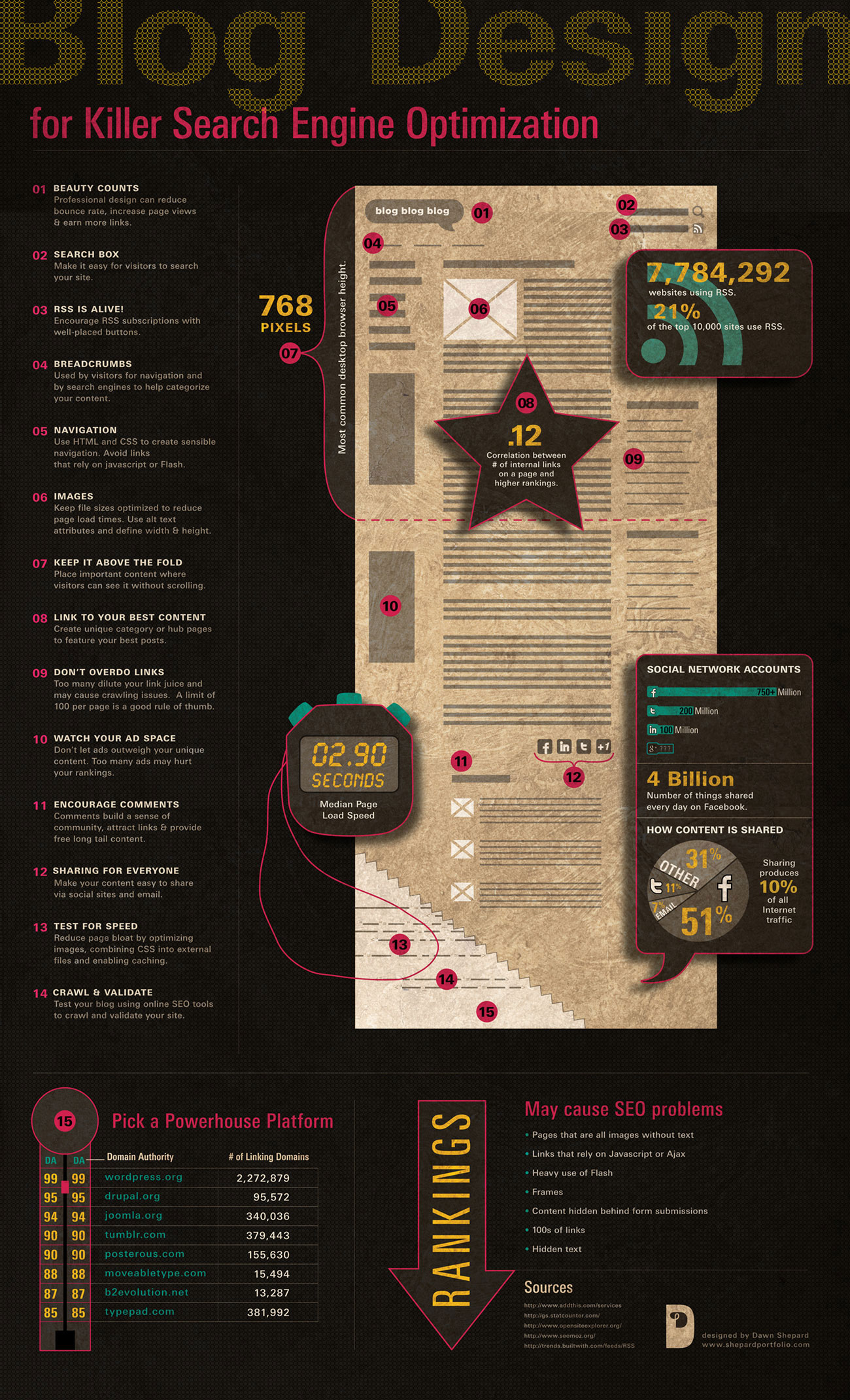
How to be an Efficient Blogger?
What is a blog and who is a blogger?

The word blog has come from the word ‘weblog’. A blog is a kind of content written online. It may be an online diary or may be an online journal. Blog can be written by a single person or a small group of persons on the same topic. Blogging is the act of writing content on a blog and a blogger is one who writes posts for a blog.
Purposes of writing blog
According to the purposes, there are different types of blogs which should be known by an efficient blogger. Some blogs are written as personal diaries providing one’s personal information. Some blogs are written for the publicity of a product of a company.
There are some blogs which invite online comments from others on a particular subject. There is also much kind of blogs which are written on the basis on their needs. So a blog can be anything you write on the web to fulfill your purpose.
Now the question is how to be an efficient blogger. The efficient blogger are those who write their blogs attractively and keep in mind the purposes of their writing blogs. Some points should always be followed to be an efficient blogger are as follows:
How to be an Efficient Blogger?
Good content
First of all a blogger has to focus his mind on writing good content .Good content means writing the content with simple and attractive language. Your content should be easy to read. You have to trap your readers with your words. You don’t need to use typical and complicated words which will make your readers rather bored and detached from your blog.
Online readers don’t have much patience to read an elaborate description written in a literary way. So feed the reader with your content to that extent they want to feed and not more of that otherwise you will see the face of failure. So a good content being the bottom line of a blog helps a person become an efficient and good blogger.
Knowledge
Knowledge is also an important determinant for becoming and efficient blogger. As a good blogger you have to acquire vast knowledge on different topics. Sometimes a blogger may need to some suggestions or advice to his readers. If he doesn’t have much knowledge he will be unable to deliver proper advice or suggestion, which will impact badly on his career as a blogger. So first gather knowledge, be sure and then give your advice to your reader.
Using Social Media
An efficient blogger should always be passionate in social space. Associating with your readers in social media is a great tool for writing your blogs. Here, you have a great scope to know the readers’ mind and their tendencies. You just keep in touch with them personally and make them interested in your blogs by sharing comments.
Speed
To be an efficient blogger one should not forget the speed he is writing a blog. Speed is a vital point when you are writing blogs. You have to write your blog speedily as well as accurately. Mind your all messages are there you need to provide your readers.
Updating of Blogs
As you are an efficient blogger, it is very important for you to update your blogs regularly so that you may get your readers interested in your blogs. It will refresh your blogs as well as your readers.
Being Neutral
A person should be neutral in any respect in his writing if he wants to be an efficient blogger.While writing blogs, you should maintain neutral attitude irrespective of caste, creed, religion and country. Don’t get involved in this thing and think of yourself as a cosmopolitan and then you can enjoy the traffic your fans in response to your blogs.
As a good blogger one has to follow the above-mentioned points thoroughly. Then he can sustain in the field of blogging and earn a high respect and income.
Using Your Blog to Quit Your Day Job

Millions flocked to see Julie & Julia in theaters and most probably left feeling a little ambitious and more than a little starry-eyed. What’s not to like about a story—a true story—where a regular, every day woman is catapulted to fame and fortune by a little cooking blog she updates from her NYC apartment? Doesn’t it just seem like it could happen to you?
You too can make money blogging. We live in an extraordinary time, because people are actually able to quit their day jobs to focus on their blogging. While the average Joe might not see more than $500 a month (on a really good month), perseverance and a lot of trial and error can put you on the path toward an office-free income.
Getting Started
The first rule of blog club is: pick a compelling concept. The best and most monetarily successful blogs have some kind of purpose. Whether it’s a “come with me on my journey”-type idea (like Julie Powell’s), or a series of how-to entries, or it’s ensconced within a certain niche and designed to inform, share and connect. Food, automobiles, parenting, shopping, fishing, exercising and weight loss…the key is picking something you are truly passionate about, because if you have interesting and insightful things to say you will get, and keep, readers—which is important if you want to make money.
There are a number of blogging platforms to choose from, the most popular two probably being Blogger by Google, which is incredibly user-friendly, and WordPress, which has beautiful, clean templates, but is a bit trickier to figure out if you’re a first-timer. Search for different blog options and don’t be afraid to experiment.
Nail Down Your Blogger Business Model
There’s a difference between wanting to get paid for blogging and wanting to have a career out of it, and you should approach those goals with different mindsets. Of course, one can turn into the other with success (or lack thereof) but a good rule of thumb is to set a weekly entry goal and stick to it for at least six months to a year. Like exercise, make blogging a habit.
Turn Your Words into Cash
Blog traffic is the first part of the equation, and to generate the kind of interest in your blog that will bring in money, you’ll need to market your brainchild. If you have a Facebook, Twitter or LinkedIn, use your accounts as free advertising to all your friends, families and even coworkers. Dabble in search engine optimization, or SEO, by using commonly searched-for phrases and words in your content, to help your blog show up in search engine results.
Find blogs that are similar to yours and post thoughtful comments, so that people who read that blog will want to come to yours and find out more about what you have to say (usually the name you sign off with turns into a link to your blog, so no need to leave your URL; that can be construed as tacky).
That brings us to ads, perhaps the best way for you to start making money with your blog. One lucrative way to generate income is to join an affiliate network, where you are paid by a major company, like Amazon, to advertise for them on your blog, and every time someone gets to them from you and buys something, you get a commission. It’s not only simple, it can add up quickly. Check out sites like Google AdSense, Microsoft adCenter and Clickbooth.com cost per click formats which can generate income. (where you get paid every time someone clicks the link – and they don’t even have to buy something).
Beware of the Pitfalls
Pitfalls? What kind of pitfalls could there be when you get to write about what you love and then sit back and watch your blog generate cash? If you’ve reached the point where you can quit your day job, then you know it actually takes a significant amount of time to oversee everything. Since you’re not at an office surrounded by coworkers and friends, you may get a little lonely stuck at home with little human interaction.
Also, one of the major downsides is how unpredictable the blogging-for-money market is. Up one month, way down the next, it can be a financial rollercoaster, and even if you’re making thousands of dollars per month, you’re still just as susceptible. There are no certainties with blogging, but if you’re lucky, there can be success.
That’s why it is always recommended you keep multi channel multi revenue approach – Offer courses, act as a consultant, be a speaker, charge for being an infleuncer, take editorial adverts on your blog, join affiliate programs and also directly tie up with companies for product or service reviews as their paid PR campaign.
Make Money Blogging With Affiliate Programs
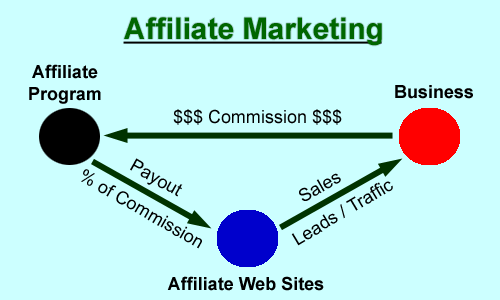
You many have gotten into blogging because you had a message you wanted to share, and you may have gotten started because you wanted to make some extra money, and there is a very good chance that both of these reasons contributed to why you started a blog.
You probably have ads on you blog through Google Adsense. You can make a small amount of money with these ads every time one of your visitors click on these ads, if someone clicks on these ads.
While ads are a good way to make money, affiliate programs are an excellent way for advanced bloggers to start making real money. Affiliate marketing programs can seems daunting and difficult to get the hang of, which keeps many from tapping into this great source of income. This guide should help you get more comfortable with affiliate programs and help you start making money in no time.
What are affiliate programs?
Like with ads from Google Adsense, you post banners, ad units, links and more. These come directly from the people who sell the products and services who you are advertising. While some of these are pay per click like Google Adsense is, most affiliate programs will pay you a percentage on all purchases made from those who click through from one of your links or ads.
How do I join affiliate programs?
It depends on which programs you join. Amazon.com is a prime example of one site that lets you sign up for their affiliate program directly from their site. Others let new affiliates join by signing up through a portal site dedicated to affiliate programs.
You will most likely have to provide any affiliate program with information about you, your business and your blogs. In addition to providing your contact information, you will need to provide your tax information and banking information so that you can get paid.
Affiliate programs will want to know about your blog or blogs. In addition to the web address, these will also want to know how long you have been blogging, what sort of topics you cover and maybe even more information.
After providing this information, this doesn’t mean that you are all set and ready to go. For the lion’s share of affiliate programs, not everyone is automatically accepted. Some programs will only accept blogs that cover certain categories, have a particular page rank or have been on the web for a certain time period. There occasionally is other criteria that these programs use to choose which blogs they allow, and this will vary from program to program.
Is there a best program?
There isn’t one best program, but there are certain things you should look for in programs that make the better than the others. Look for programs that provide you with good looking, eye catching ad units and banners that will make visitors more likely to click through them. You will also want programs that pay you for the most things; if you can find one that pays per click and a percentage of purchases, it may be a good deal. Whichever one you go with, select carefully, as some programs may not like it if you have other affiliate programs on your blog.
How do I get paid?
Again, this depends on the program. Some programs pay out monthly or quarterly. Others pay out when a certain amount of earnings has been reached. Some won’t pay out at all unless your blog has managed to accrue a certain amount of earnings.
While this varies from blog to blog, there are certain pay schedules that are more advantageous to you. Particularly if you are just getting started, you will want to select programs that pay out on a regular schedule regardless of earnings. If there is a minimum amount needed for payment, you want the lowest amount possible, especially with a pay per click program; if you have to wait to get to $100 for a check, it may never happen.
Conclusion
Affiliate marketing programs are one of the best ways for bloggers or other site administrators to make money. Affiliate programs can be easy to join, and there are plenty to choose from, so you can find one that is well-suited for your blog or site. Just be sure to choose programs carefully and make sure you select one that seems reputable and has a solid pay schedule established to ensure that you really will get paid.
How you can create a successful blog

There are billions of internet users, so why is your blog not getting hits?
One of the main ways to make sure your blog is successful is to make sure you are active. You have to be active a lot; this is a minimum of once a day.
If you are not updating your blog at least once a week then people are not going to continue to visit it. If people are visiting your blog in the first place it means that something you are posting is interesting to them.
As a result they will keep coming back to check what new updates you have or new content for them to see. If you are not updating your content regularly eventually they will get fed up of coming back for nothing or will this that you are no longer active.
Don’t dismiss people who come to your blog or speak to you. If there is some sort of messaging service for your users to contact you, then answer them. You need to engage your audience and by ignoring their messages you will only turn them away and could also make them bitter.
You need to keep your blog up to date and looking nice. Nobody wants to come and look at a disorganized and unattractive web page. No matter how interesting your content may be, if the framework is not there to make it look pretty it will not entice anybody in.
You also need to keep checking your blog as a user will see it just in case there is an error with it. If something is updated make sure you double check the user view as there may be issues for them which will stop them viewing your content. It must look professional for anyone to take you seriously.
When you add content to your blog make sure to add relevant long tail keywords as you can. This is for the users who will use search engines to find content that is similar to what you post.
If you can master this then you will have a large amount of hits very quickly. If you think it links slightly to your content make sure you tag it. There’s a lot of content within the World Wide Web so make sure you give yours the best chance to stand out from the crowd.
Try placing adverts for your blog wherever you can. Whether it is a postcard in the local store window or an ad online. Any advertisement is going to help you receive hits. The more traffic you can get on your site the more successful your blog will be.
It works in what is called a snowball effect, it starts tiny but once it gets going it builds rapidly. This can happen simply from word of mouth. For example one user stumbles across your blog and loves it so they share it with their social network where their friends will continue to share it and in no time your traffic is through the roof.
There are many aspects affecting the success of a blog but these are some fool proof tips to help you on your way. Good Luck!
How To Think Up Engaging Blog Post Ideas & Blog Topics for Any Industry

One of the biggest fears most businesses have of blogging (besides finding the time to do it) is coming up with relevant topics to blog about. Most businesses finally see the importance of blogging (for your brand, your online visibility, your SEO, etc.) – now we just need to help them figure out what to blog about.
Related reading: How to build brands
When faced with a skittish client in need of blogging advice, here are some tips on how to get them thinking outside the box for ideas.
Help Them Develop Objectives
Get them talking about what they hope to achieve with the blog, what they want to come from it, who they foresee their main audience being, etc. Make sure they have a plan for who from the office will be blogging and monitoring comments.
It also never hurts to sync social media accounts to blogs to easily share each new post.
The Usual Suspects
First, get the usual business ideas out of the way – be sure to tell them to blog about:
Company news/press releases
Product information/insider info
New hires/promotions/employee achievements
Customer interviews/spotlights
Relevant local events
Conferences/shows they attend
Easy Pickings
Next, tell them about “easy” posts – the kind of posts that require a little research, but not too much brain power since they’re more opinion/editorial:
Reviews – they can weigh the pros and cons of a tool or technology they use in their field.
Resources – research and develop a post filled with resources on a particular topic related to their business.
Critiques – Find another post on a relevant topic and analyze or critic why you may or may not agree with it.
Digging a Little Deeper Into Business Blogging
Once you have the easy and obvious out of the way, it’s time to dig a little deeper into blog ideas.
Tell them to:
Talk to their sales and customer service team to get insight into the types of questions, concerns, or hot buttons prospects and customers have and then blog about them.
Research industry-related blogs and keep them as a sort of “swipe file” to use for inspiration.
Not be afraid of getting a little personal by talking about fun office events, personal stories (preferably that can tie back to the business), and generic customer issues /complaints they’ve run into and addressed.
When In Doubt, Turn to Technology
One of the best things about blogging for your business is how it can help your SEO and search engine visibility. So it’s definitely important to have some blog posts dedicated to specific keyword topics that the business is trying to rank for.
By no means should a post be written just to have keyword content – but rather, a post can be adjusted in order to hit on specific keyword topics for which the business wishes to rank. In this case, you can often come up with useful, keyword-centric topics for your blog by using a couple tools freely available online.
Our favorites are:
UberSuggest.com – this tool shows you a ton of long tail keyword phrases based on the main phrase you type in. It’s based from Google Suggest and other tools, which tells you what other long tail terms people search for and specifically some of the terms that pop up in the Google dropdown when someone does a search on Google.com
Wordtracker’s Keyword Questions – This tool identifies questions people type into the search engines related to a specific keyword. Writing a post that specifically answers a question people ask online is an awesome way to aid SEO and engage relevant visitors to your site.
What More Do They Need to Start Blogging?
At this point, you’ve given them a ton of ammunition to start blogging for their business. They now have no excuse NOT to inject their website with new, engaging content on a regular basis.
16 Awesome blog topic suggestions
- Underscore Technique in Google Search Box or Youtube
- Google Search Auto Suggestions
- Google Question-Based Searches (How, Why, When etc.)
- Related Searches in Google
- Analyze People Also Ask Box in Google
- Check Amazon.com (Books)
- Check Google News
- Scan Forum for Topics
- Look at Wikipedia’s Table of Contents
- Discover Content Ideas with Quora
- Find Content Ideas in BuzzSumo
- SEMrush Topic Research
- Twitter Latest Search Feature
- Check Alltop.com (A Great Place for Finding New Blog Topics)
- Use Google’s Keyword Planner
- Find Question-Based Topics With AnswerThePublic.com or alsoasked.com
Some more tips on how to choose effective blog topics
Here are some tips on how to choose effective blog topics –
- Write on topics that you want to share knowledge with your audience. Try to give valuable information to your audience through content strategy
- Check what your competitors are writing about
- Write on relevant & fresh topics (not things from past)
- Use Google RTS (Auto-fill feature in search engine) / Related search suggestion on bottom of SERP for content writing idea in your domain
- Use Google Trends
- Check Buzzsumo. It’s paid tool but still can explore few useful features
- Check answerthepublic.com. It’s a free tool you can use for content idea
- Other tools (paid ones) you can see – ahrefs.com, semrush.com
- https://www.hubspot.com/blog-topic-generator
- https://www.portent.com/tools/title-maker
- You should focus on curated lists, power word titles and as well as Evergreen content.
Related reading: 50+ Evergreen content ideas
How to bring readers back to your Blog (4 best tips)

I understand the effect the recent Google updates had on some of yours search engine traffic. Unfortunately, I have even seen many webmasters and pro bloggers losing their entire business. But we can hardly blame Google or be mad at them. They are just doing their business, and now it’s your turn to do yours.
Have you ever though what you did with your hard earned search engine traffic once they visit your site? Of course you hope and (most of the time) try to make them read an article, click on an ad or make them buy something from you. But what’s next? What after they have done what you want them to do? Don’t you want them to come back for more?
If yes, what are you doing to bring your readers/ visitors back to your site again and again? Believe me, this is the ONLY way to stay profitable in this cut-throat competitive market. You need to engage your visitors with your website or blog. When a website fails to do so, it means the visitors do trust or feel engaged with your particular site. And if your reader don’t feel engaged with your content, don’t blame Google the next time you lose rankings.
I know you have tried everything from creating unique and original content to optimizing them with proper keywords. You have been really working harder to retain your visitors. So this time why don’t try something more, apart from creating amazing content. Work to bring them back again and again and spread the word out about their amazing experience with your site to their friends. I have a few tips for you:
Tip #1: Building Subscribers
Try to encourage your readers to subscribe to your blog instead of motivating them to click on Ad-Sense ad to earn you a mere $0.10. Pop-up ads are indeed annoying, so are the other ads. Avoid placing ads in your site’s best content and rather leave them for sidebars or other pages.
The only purpose your best content should serve is to impress the user and letting them like your blog and subscribe to your RSS feed or newsletter. In doing so you might lose some money from advertising or affiliate revenue but believe me you will the gainer at the end. It will earn your readers respect and trust and of course, a few more subscribers, which is far more valuable than earning a few cents from a one-time visitor.
Tip#2: Creating Followers on Social Networks
As a marketer you are aware of the value of word-of-mouth. It helps to create a viral effect on the digital sphere. In this age of social media you best bet is to get people like and follow your content/ page on Twitter, Facebook, Google+, LinkedIn etc. People who start following you in a social network are more likely to follow you forever. And when you create and share some interesting stuff on your blog, these people will not only come back but will also like, share, recommend or retweet the link to their friends and followers. This is one of the best ways to bring your readers back to your site.
Tip #3: Encouraging Contribution
Okay, you have done everything mentioned in this post. What’s next? Why can’t you still engage your readers? This is something you should ask yourself. Would you like to visit a place where you have no say – where all you do is listen (read in this case)? I guess no; none of us would and this same theory applies to your readers.
Encourage them to voice their thoughts – ask them to share whatever they think or can contribute. Comments are the most common and simplest form of contribution. Unfortunately, many blogs disable comments in fear of spammers. Believe me there are numerous ways to get rid of spammers other than disabling comments. Allowing comments, on the other hand, has many advantages. It encourages discussion and your readers are more likely to come back to blog just to see the response their comments got from other, if not anything else.
You can get more creative with encouraging people’s contribution. Ask for guests posts. This means free content for your blog and for them, it is the inbound link that they will receive. Besides, guest bloggers are more likely to promote your blog in social networks in order to promote their guest posts. And free publicity will undoubtedly bring more numbers of readers to your blog. If your niche allows, you can even encourage your readers to share pictures and videos, code snippets, tips, recipes, and community news etc. Reviews, ratings, likes and sharing too are good ways to encourage readers for contributing to your site.
Tip #4: Surveys, Quizzes & Tests
Quizzes, surveys and tests too can help you encourage your readers to come back to your blog. People love to show your achievements to the world and your readers are no exception. Besides, such practices improve your reader’s engagement with your blog. Publishing knowledge tests and quizzes will motivate people to come back to your blog to learn more and improve their results.
Also, give out badges, as people love to share them on social networks. Finally, be creative while creating content for your quizzes, surveys and tests. Create original, interesting and preferably long quizzes.
Follow these tips and I’m sure you don’t need to worry much as Google launches its next update.
As Good As You Know Your Readers, As Good Your Blog Will Be
Offer something special to blog readers

Everyone knows that content is the king for blogging success and most of the bloggers concentrate on creating good content. No doubt, quality content can turn your dreams true in this sector but you will have to invest more in your blog to get consistent and long time results. Loyalty is what a blogger will always expect and need from the side of visitors and this will come when you are god, kind and passionate towards the readers.
There is no denying the fact that the visitors and blog readers will need some sort of passion, authority and many more things if they need to enjoy the experience in real terms. That is why we will discuss here how your blog gets going when you supply the readers with something which is more than just hard-hitting content!
How to be good to your blog readers?
First of all, you are needed to bring some relation facts into your conversation. Everyone is busy in his or her life and he takes some time out of schedule for putting valuable comments to your blog. You cannot keep them busy in petty things or you can never think not to respond. It is much better to communicate with them. Connectivity is always important in blogging industry.
You should also take out some time to enhance your personality, in the eyes of the blog readers. This will let them know much about you and your orientation.
The most important thing which the blog readers will always like from your side is the consistency. It may refer to regular communication, daily updates and responding to their valuable comments. All these things will keep you consistent in this industry where competition is so fiercer.
Moderate blogging is always beneficial; do not load your readers with more than enough content on your blog. This will definitely irritate them. Maintain the quality and you will reap the benefits for a long time.
Related reading – How to decode reader psychology in content writing
You may reject this suggestion but reputation is second to none in this world. People will always like to get connected with famous personalities. It is the history and no doubt, it will also be seen in the future trends. The time demands to get connected with influential websites, personalities and experts to make your blog interesting. Get your impressions active.
At the last but not the least, the blog readers will also seek for the most valuable thing and that is the trust. You should never try to speak lies to your valued readers or visitors through your blog. You should always give the due credit to your readers. That is where satisfaction rests!
Blog will show and fetch your skills
It should be always remembered while blogging that the blog can act as your perfect replica which covers a wide variety of traits, personalities and views. Readers will obviously impressed by these things and they will pay you returns. The suggestion for you is to always remain good to your readers for wellness of your blog!
Summary
The best thing about the blogging service is that it represents most of the personality of the owner. That is why you should be always generous and active in blogging industry. Many things matter apart from good and quality content for the blog readers.
Secrets of a killer blog post [Infographic]

Source: WhoIsHostingThis?
Top 5 Blogging Traps You Must Avoid
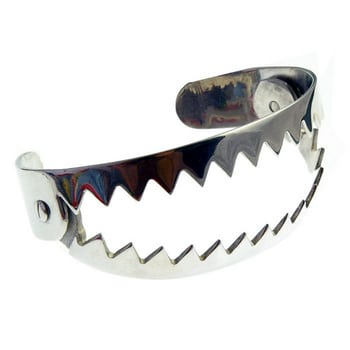
Blogging is, like any other form of art, filled with traps that sap your creativity and productivity. At the end of the day you are left with nothing to show on the blank screen staring back at you and disappointed readers who see nothing updated on your blog. In this post, we have listed the top 5 blogging traps that you must look to avoid so that you continue writing and updating your blog regularly. Check them out and steer clear of these blogging traps:
Top 5 blogging mistakes to avoid
- Too Many Ideas: Blogging is a personal medium but that does not mean that you will pack in whatever is going on in your mind in one single blog post! Follow the cardinal rule: one idea per blog post. There may be different aspects to a topic. In such cases, serialize your blog posts. Do not cramp in too many ideas in a single post because readers feel claustrophobic. The attention span of online readers is short anyway!
- Too Long in an unstructured way: This one follows from the previous point: keep your blog post limited to a short length. The longer you drag it, the greater is the tendency of your readers to get distracted or disinterested unless it has clear page menu or page sections. Keeping it precise and relevant will ensure that your readers get to the bottom of the post without being bored. Up to 2000 words with clear paragraphs/heading would be perfectly fine. If you write guide books as blog post [ more than 10,000 words] you must put clear page sections or page menu at starting of your content.
- Too Often: Too many blog posts on your blog within a short period of time dilute the effect of your posts. Readers are spoilt for choice and they jump around without really reading any of the posts with interest. Surfing through your blog will definitely not help your case. To make them read, publish less frequently but of great quality so that it makes an impact and readers are waiting for more.
- Too Much Editing: Editing your blog posts cruelly is necessary, but if you feel obsessed about every word you write, your blog post will never be finished! Heavy editing also makes your thoughts appear disjointed. Edit judiciously and walk away from the computer when you feel bogged down from the editing work. Come back later.
- Too Much Impact: Do not expect all your blog posts to go viral and create a flurry on the internet every time you publish! Blog posts find their own popularity and number of ‘shares’. You cannot control that. Your job is to write well and promote well. Let not the outcome dictate your blogging efforts. Related reading: How to make your content shareable
Related posts – Top blogging myths
Top 3 Reasons Your Blog Misses the Mark

What is the dream of a blogger? Ideally, it is to get more readers on board, followed by appreciation for the writing and finally, a steady stream of loyal readers who also share your blog and bring in other like-minded readers. Sounds a little unreal, doesn’t it?
After all, these are the aims that you started your blog with, only to lose your way somewhere down the line. Those fantasies of getting hundreds of readers visiting your blog evaporated all too soon! Don’t give up just yet! Here are the top 3 reasons your blog misses the mark. Fix these loose ends and experience the difference:
Irregular Posts:
Readers of a blog come back regularly if you post after particular time gaps. That gap may well be a few hours or days, even weeks. But it must be something that the users can rely on. That way, these readers will know when they can come to your blog and read a fresh post. Sporadic blog posts and haphazard posting schedules confuse the reader and they soon lose interest. Draw up a writing schedule and stick to it. The results will show.
Continued Self-Branding:
Readers are interested in your brand of writing or whatever you are writing for, as long as you keep it that way. The moment you repeat the marketing message or try to push things down their throats all too frequently, readers are repelled. It is your blog, of course, your writing is about what you think. But you have to consider the readers if you want to make your blog popular. Consider their end of the bargain. Write on issues they want to talk about and dilute the self-patting.
Writing Matters:
This is the all too obvious tip to fix a sagging blog. Improve the writing. If you write yourself, check up on what the better blogs on the internet are writing like. The narrative, the use of language and the reader engagement is most critical. Get hold of a seasoned editor to go through your work. Ask for reader and peer feedback. At best, if things are not working out on any possible level, hire a professional writer. The writing on the blog is second to none in terms of importance.
Top 5 Tips for More Blog Visibility

Blogging is the ‘in’ thing when it comes to web content nowadays. Blogs are not just pages of information dissemination. They play the pivotal role in online branding and marketing. However, blogs need to be visible to readers who are looking for content in the domain of your business.
It is your duty as a blogger to ensure that your blog reaches out to the maximum number of online readers. The rules of promoting a blog have changed over the years. What have not changed are some basic tips that are enough to bring in online readers to your blog.
Tip 1: Know Your Readers.
You cannot achieve much as a blogger unless you identify your online readership and then cater to their tastes. There is no one-size-fits-all kind of writing today. If you try to please all, you will end up displeasing everyone. Its much better to play to your readership and attune your content and style of writing to suit the requirement of your target readership.
Tip 2: Know Where Your Readers Belong.
Specific reader groups are available on different social media channels. You have to track your readers down and zero in on the social media networks or forums where they prefer to hang out online. Promote your blog actively on these platforms. Use free data available on Google Analytics to pin down the origins of your readers by looking at referrals and other tracking statistics.
Tip 3: Invest in Social Community Building.
Your blog must act as a kind of platform for like-minded netizens to gather around. You have to take the initiative to make your blog a rallying point for online readers who are interested in the domain that you write about. Allow them to discuss ideas on your blog. Encourage user-generated content. That will build up a social community on your blog and you will soon find other readers trooping in to find out what you have to say about particular topics.
Tip 4: Encourage the Sharing of Blog Content.
Content on your blog will only go viral on the internet if you encourage readers to share your material. Make your blog template easier for those who want to share your posts through Facebook or Twitter. However, keep in mind that adding a ton of sharing widgets on the blog is not going to serve your purpose. Instead, rely on your statistics to find out which social networks are populated by your readers and then make simple ways for these readers to share your content.
Tip 5: Build Authorship.
You can increase the visibility of your blog manifold times by portraying yourself as an authority writer. All you need to regularly publish high quality content that prove your expertise in subject matter. Join as guest blogger on good quality websites and maintain your personal branding.
Related reading: How to bring your readers back to your blog
Find out why your blog is not read!
Every content marketing team published blog posts in the form of content, Infographics or videos. Blogs act as vehicles to disseminate information and have the potential to be excellent tools for online marketing. The problem is that there are so many blogs waiting to be read or simply ignored. With so many options on the table, many blogs are bound to feel relegated to the sidelines. How do you prevent your blog from hitting the oblivion room on the internet? Here are some pointers!
Trust is a very important reason why an online visitor will read what you have written. Do you buy a book by judging its quality from the cover? No! You buy it because you trust the writer and feel that you are in for a good read. The same thinking applies to blogs as well. You need to build up a credible and reputable standing in the online community. Publish your name and other coordinates. Let the readers know that you are not content churning software but a real person. Readers on the internet are tired of spammers and pseudonyms. Give them the real deal and watch them repose their faith in your work.
Dish out something new and fresh. The online community is packed with recycled content. You write something on your blog that is borrowed from another blog, which in turn is ‘inspired’ by some other piece of online writing! What happens if the online reader is discerning and has already read the original post something? You end up looking like fool and nothing more than a content duplicator. You are not perceived as a writer anymore. You do not want that to happen to your blog. If you are not able to think of fresh ideas every single day, cut down on the number of posts you publish. Just whatever you put up on the blog, make sure it is new.
Having opinions is a must on your blog. Readers of blogs want subjective writing. They are not comfortable with generalized views. Such pieces of writing are for articles, not blogs. In blogs, people want personal views. That, however, does not mean you express radical views that might marginalize your readers! Be assertive without being offensive. And always leave room for readers to chip in with their two cents.
Sure Ways to Increase Blog Viewership

There are a number of ways to increase the number of online readers that troop in to check out your blog. It is imperative that you try out some of these methods to check out what works for you. Of course, there is the traditional way of actively promoting your blog on social media networks and search engines. Active SEO will definitely result in visitors to your blog. However, in this post we are considering blogs maintained by the writers themselves.
Obviously, these blog writers don’t have the ammunition or team to conduct extensive SEO for their blogs. Does it mean that they will always shy away from having a steady stream of online readers? No! Here are some methods that you can try out to get more visitors to your blog.
First, you should not expect other bloggers or online readers to share your blog content actively unless you do the same. No one online will talk about your blog or your work if you remain aloof and passive on social media discussions and forums.
A great way to build up interest about your blog is to show genuine concern and participation about other blogs in your domain of interest. Leave insightful comments on those blogs and contribute to discussions that make sense. This will encourage others to visit your blog and return the favor.
Second, this tip has something to do with writing the blog itself. When you are drafting a blog, make sure you are being informative and not just readable. You cannot gloss over generalized ideas and concepts if you want readers to take your blog seriously.
You need to mention sources and link them to authentic websites from where you have pooled the data. This will not just convince your online readers that you mean business but also ensure that these big players (your sources) know about online presence. That does affect a lot!
Third, do not write more blog posts. Rather, when you write, make a swell job of it! The tip of writing blogs every night and pasting them online or writing regularly does not work anymore in the days of Panda and Hummingbird.
Instead, take your time and draft a post that will create ripples. Then take your time and work on the next post. This will get you more brownie points from your readers than managing a voluminous but essentially idea-empty blog.
Related reading : How to do guest blogging
Update Your Blog before Blogging Again
It is the accepted custom of SEO initiatives to blog as soon as there is a need to inject new content into the stream. This notion is being challenged by another alternative way of being counted in the content marketing department. The idea is to update your existing blog content before you begin adding to it.
Many of these blog posts are likely to have ideas that have now morphed into something else. You will do better to brush up these concepts and add newer highlights to posts written ages ago. This concept of updating your existing blog posts will help you better in the area of content marketing.
What is the point of adding to the blog content anyway if all you are doing is rehashing or rephrasing content that is already there? There is only so much of new area when it comes to content in any domain. Little remains to be talked about. So, instead of serving old wine in new bottles, why not keep the old bottles and improve the frills and packaging?
No reader appreciates blog content that talks about ideas which were in vogue in 2009. They want to know what the trends are in 2025. So, even if you have hit the right notes in the keyword department and got heavy online traffic on your blog post, the incoming stream of visitors will bounce back into oblivion again.
Reason: they find that the points you’re dealing with in your blog are no longer relevant! Instead of updating those points, you are adding to your blog page every single day. Spend this time and effort in brushing up older posts with newer facts. Add points to these old posts but do not recreate them into new URLs. Allow the old ones to remain. Do change the post date on your blog posts.
After you have updated your blog post, share the content in the way you would do for a fresh post. Use the social media machinery to grab eyeballs. This will save you the time of writing a new post and at the same time you will be adding the much-needed fuel to your content department.
Keeping the same URL has its advantages, too. The web links that you had spread out to capture traffic for the post will still reap in dividends and the search engine algorithms will recognize your blog post easily. Moreover, you can add web links and back links on the updated post. This is a win-win situation for you!
Top 3 Alternatives to Blog Posts

The reason why most online marketing teams depend on blogging as their primary content tool is its popularity. Blogs have a unique way of warming themselves into the hearts of online readers. There are many factors that work in their favor, the most obvious being the factor of informality. There is no stiffness associated with articles or blatant marketing pushes like in website content. However, blogs cannot be the only marketing tool for an online marketing unit. The blog space is quite saturated and you need to think of other options to widen your net. Here are the top 3 alternatives to blog posts:
White Papers:
Don’t scoff your nose just yet! We always look at white papers are something that is formal, authoritarian and material for serious, scholarly reading. It need not be so! You can develop white papers for laymen readers. You need not burden them with official jargon. Instead state your facts and back them up with statistics. The reliability of your information in the writing must come across through the white papers. Hire a professional if needed.
Ebooks:
Ebooks, as of now, are not being used extensively as a content marketing tool. There are some writers who publish ebooks and sell them as digital books. You need not write a 200-page ebook in order to make your point. Write a short one of, say, 50 pages.
Moreover, you can give away the ebook free as a complimentary gift to those who fulfill a certain criteria in promoting or popularizing your brand. Ebooks are not looked upon as untouchables anymore! You can achieve concrete online marketing through content disseminated through ebooks.
Related reading: Top 30 Digital Marketing Free PDF eBooks
Infographics:
Definitely the most popular among the top 3 alternatives to blog posts, infographics have a strong wind under its sails, primarily because of the social media boom. Infographics are shareable, catchy and make a strong impact in quick time. With various tools to make infographics easily available online, you are one step away from creating an infographic that conveys your message effectively. Here’s the clincher: infographics have an uncanny knack of going viral, the nirvana that every online marketing team wants it content to go!
Key Tips for Bloggers to Write An Attractive Blog Post – Blogging guide

The title you choose will make or break your piece—it is the most important part, because it is the only element your reader will definitely read. He scans it to find out if he’s interested in what follows. This makes it an ambassador for your content: it must accurately and appealingly represent your content.
An interesting article with an uninteresting title will not be read, but an uninteresting article with an interesting title will at least be scanned. So spend an appropriate amount of time writing an interesting one. I usually agonize over my titles for 15 minutes or more. I’ll start a piece by writing down numerous title ideas and refining them into a shortlist before picking one.
And then I’ll repeat the process again when I’ve finished writing, because I invariably end up thinking my previous effort sucked. Here are the principles I use to reduce the problem as much as I can:–
Important blogging tips to write an attractive blog post
The questions & the test
A. Longer titles convey more information. Shorter titles convey their information more quickly. So there’s a standoff between the two. Your title should contain enough information to accurately represent your content; little enough to represent it engagingly. As a rule of thumb, ten words is a good figure to aim for. But rather than agonize over length, make every word count.
B. Your premise is a good starting point for your title. It contains at least the essence of your content, if not yet in the most enticing form. You can gauge how enticing it is pretty accurately with the “So What” Test: read your title aloud, imagining you’re a reader.
Now, ask yourself: so what? If you’re left shrugging —“so what indeed?”—then your title needs work. This is okay; you can use the shine headline formula to improve it:–
Related reading : How to write killer SEO titles?
Specificity.
Specificity is interesting. Facts and figures, names and events, funny details—these make a title stronger.
Helpfulness.
Your title must say something that implies how useful your piece will be to your reader: how it will give him some information he needs, or solve some problem he has, or satisfy some itch he wants scratching.
Immediacy.
The other four elements will give your reader a good sense that he should check out your piece—but not necessarily now. For that, you need urgency—which is most easily found in the form of something that’ll arouse his curiosity.
Newsworthiness.
If you aren’t saying something new, something your reader hasn’t head before, then why would he bother reading your piece? Right?
Entertainment value.
Readers—especially online —will not be bored. Even for serious topics, making your piece enjoyable to read is a good idea. Controversy is particularly entertaining.
For example, imagine you’re writing a piece on how to play the ultimate poker game. The first title below implies some helpfulness, but doesn’t differentiate itself, so it’s not newsworthy. If we add curiosity and benefits we increase the immediacy; mentioning key details and calling out the reader makes it more specific:–
i. How To Play The Ultimate Poker Game
ii. Texas Holdem Players: 5 Pro Secrets for Trashing Your Friends
Role of Blogging in Digital Marketing
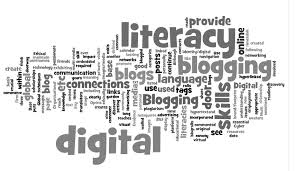
What is Blogging?
The term ‘blog’ has been derived from the word ‘web log’. A blog is a type of content written by individuals or companies or organizations.
Blogging is the act of writing any content in a blog. Blogging can be online diaries or online journals. It can also be called online journalism. Besides writing, blogging can be enriched with audio and video. Bloggers are those who write for the posts of blogs.
Digital Marketing
Digital marketing is a kind of marketing done through electronic media like computer, mobile phone, television, radio etc. As far as blogging is concerned the successful digital marketing are mobile marketing, e-mail marketing and social media marketing.
Importance of Blogging in Digital Marketing
Blogging can be a great tool for digital marketing. By blogging marketers can create a good impression of their companies as well as products. Good and reliable content attracts the customers easily. Some basics points which relate blogging with digital marketing are as follows:
Content Creation:
Good content is the essence of good blogging which is the essence of good digital marketing. The content should be written in simple and lucid language and side by side business messages should be endowed accurately. The content should be written in such an interesting way that the customers can be allured easily by it and they keep visiting your blog regularly.
This results in meeting your sole aim, i.e. marketing. So in the rat race of marketing the marketers cannot help paying their full attention on blogging. Thus blogging with a good content helps a lot for digital marketing.
SEO Factors:
The blog written with good content and proper keyword density will get preference of SEO and thus it helps the website come upward in web ranking. It will enable the marketers to cater their customers with the information they are searching for about any product or service early and promptly. Thus with maintaining the SEO factors blogging helps in digital marketing.
Online Traffic Generation:
The more charming the blogging is the more it allures the customers. They will get interested in turning over your website’s pages. Thus online traffic generation will be increased, which ultimately promotes the digital marketing.
Getting closer to the customers:
It is very important for the marketers to always keep in touch with the customers through their blogging. It can be making a common wish to all the customers on a particular festival or occasion or it can be a wish for good health for the customers. Thus the customers are somewhat impressed by the marketers and thereby digital marketing is promoted indirectly with the help of your blogging.
Website’s Freshness:
Blogging needs to be updated on a regular basis. It freshens the website. The customers also get freshened with the updated information and stick to the website resulting in good digital marketing.
Passion in Social Space:
The marketers should link themselves to the social media to get closer to the customers. They should write their own blogs and invite comments from the customers. It will enable the marketers to know the tendency of the customers about any particular product. Thus blogging in social sites can help you greatly in digital marketing.
Following Your Competitors’ blogging strategies:
To follow your rivals’ blogging is of great importance, which helps you in updating and amending your own blogs. You have to be aware of how your rivals are tempting the customers and what their strategies are. Thereby you can prepare yourself to plan your business and to adopt the useful techniques to allure the customers. Thus following the competitors’ blogs is a good tool for writing your own blogs which help you greatly in digital marketing.
These are the some points if maintained properly by the marketers; no doubt their business will take upward movement by leaps and bounds
Top 5 tips for successful real estate blogging

Real estate blogs are emerging and evolving at a rapid rate these days. They are the most inexpensive and effective internet marketing tool for brokers and estate agents. These blogs are dynamic and versatile as the contents can keep on changing depending on the options at your fingertips.
The measure of success of your blog will depend upon your contact with new as well as old clients. To make your real estate blog a success you got to make it an influential publication which will be read widely. If you want to start a real estate blogging but is new to the blogging platform then these tips can help you immensely.
1. The type of content or posts
Before you start a blog you got to figure out the type of content or post that you would be using on your blog. Writing becomes essential if you want to keep your post updated and interesting. This means the time factor also plays an important role.
If you are not willing to devote as much time to your blog then you will head for failure. Initially you can limit the numbers of articles or posts to two or three on a weekly basis. The more regular you are with posting every week, the more demand from your readers and search engines. You can gradually increase your posts depending on your time adjustment and writing fresh posts. You can add other items of interest apart from real estates to attract readers.
2. Cost of real estate blog
Before you use any free blogging platform which is readily available on the net, try to assess the cost of your blog. Since the cost of having a blog is quite inexpensive it is better to abstain from using the free blogging platform if you want to become a professional real estate blogger. Besides, most of these free blogging platforms do not provide customization and designing which is necessary for your blog.
3. Join the discussion forums
There are many questions which are posted on discussion forums and you could try answering them as it will sharpen your writing skills. If you want an increase of traffic flow to your blog you can even convert the discussions into a blog post. By linking these posts back to the discussion forums you can create an effective traffic inflow to your blog as well as gaining popularity.
4. Make a habit of reading
Reading is an effective tool for honing one’s writing skills as well as help in researching relevant real estate topics. You can download e-books on the net or subscribe to various real estate journals which can give you vital information. Being an avid reader of the subject which you are handling will help towards making you a better blogger in real estates.
5. Use marketing techniques for your blog
In order to promote your blog you got to do advertisements which will catch the eyes of your readers. If you are short on your budget for advertising then you can always opt for SEO which is an inexpensive marketing tool.
You can subscribe to SEO tutorials or look for books on SEO to help in your blogging.
Creating a new blog always need patience for it to become noticeable and popular. While waiting for results you can always look for new techniques to improve your blog. At the same time, you must not neglect your posts by writing some interesting bits which will attract traffic.
5 Easy Ways to Make the Most of Your Blog Archives

Every blog post that you create is stored in your blog archives, and those archives provide a huge repository of content that can be used wisely to engage the new visitors. Not only revitalizing the content in your blog archives, give that content another chance to survive, but it also saves you, time and effort.
That’s because giving a fresh look to your blog archives usually requires less time and effort than creating a new content from the scratch. The ultimate goal is to make readers aware of the goldmine buried in your archives. Here are five creative ways that help you to make the most of your blog archives.
1. Create Resource pages
Although this requires you to invest some time in creating these pages, the end result is truly incredible. A resource page is a group of quality content developed around a topic and is put together in such a way that attracts more page views. The idea behind creating multiple resource pages is to enable the visitors to access best content on a single page. Following are the steps that help you to create resource pages for your blog.
Identify the popular categories that have more traffic
You can use web analytics program to examine those categories that contain the most interesting content of your blog.
Find the best posts under each category
Once you’ve selected the categories, identify and list all the best posts in each of the categories. Arrange the posts by the order of the traffic they are receiving.
Create a dedicated page with a catchy title
Create a dedicated page for each category and give a catchy headline for each page. However, keep this headline short; also make sure that the title covers the primary keyword related to that particular category.
Include thumbnails
Once you have added all the popular posts to a page, do away with the sidebar and spice up the listing with appropriate thumbnail images for each post.
After creating resource pages the next step is to create a secondary menu and add the links of all resource pages. You should customize this menu in such a way as to grab the attention of the visitors. Place this menu at the top of the content for easy access. You can also create a sidebar and add the links of all resource pages.
Almost every blog uses this technique to drive traffic towards the archives. It would be better if you place links to the related content at the bottom of the post. Once the reader has arrived at the end of the post and he clicks on these related links he is taken to the similar content.
Generally this section is populated automatically through plugins like Yet Another Related Posts Plugin, LinkWithin and so on.
3. Include internal links within the blog posts
One of the simplest ways to bring life to your blog archives is to add internal links within your new blog posts. Whenever you create new blog posts, think of the old posts on your blog and use internal links to relate them. Make sure these links you use are useful or they could ruin your blog than doing well.
4. Repurpose content from your Blog archives
Pull out some of your old posts, edit and transform them into a new piece of content. This is one of the popular techniques that many blog marketers adopt. For instance, you always loved to write an ebook which you want to give as a freebie for your newsletter list but you don’t have enough time to fulfill your wish. Now, you have the chance of doing so.
All you have to do is to review your archives and pull together some of your old posts that could be rewritten into ebooks or white papers. You could also make use of some of the posts in your blog archives as the basis of an online video or webinar.
Related reading: How to repurpose content?
5. Improve the Call-to-Action
Make sure you have included call-to-action for every post. This gives your reader the next best click. Examine your site stats, and check whether the top blogs that get the most views every month have a call-to-action. If not, you need to include one.
Top 5 Tips for Corporate Blogs

If you compare the appeal of personal blogs to that of corporate ones, you will find that there are lessons to be learnt. Personal blogs have an instant connect with the readers, something that corporate blogs usually lack.
This is because of the objective and impersonal approach adopted by the writers of corporate blogs. That has to change and the best way to do that is to pick up some tips from the personal blogs, especially how they approach the writing and presentation.
Here are the top 5 tips that corporate blogs should learn from personal blogs:
Personalize
No reader likes to enjoy reading something that does not have personal connotations. As a writer of a corporate blog, you have to create that personal connection, even though you are writing on behalf of a company. Personalize your writing and inject it with some personality that will make it a more identifiable option for the readers.
The Journey
Blogs should convey a sense of journey for the readers. You must write in a way so that readers come back for more. That sense of continuation and anticipation that you generally find on personal blogs should be incorporated into corporate blogs as well.
Real-time Updates
Personal blogs have the liberty to talk about issues and topics at real-time immediacy. Corporate blogs cannot do that because there are red tape matters and hierarchical nods required before any writing goes up online. Corporate houses have to resolve this cycle and make way for writers to post updates as and when required. Of course, writers have to shoulder the responsibility that nothing untoward or regressive gets published.
Opinions
Corporate blogs falter on the altar of opinions. The messages are usually watered down so that it offends none. In the process, it makes little or no emphasis at all! You have to write with a clear, definite objective so that the readers are moved in a certain way. Do not let your message drift along with the general flow of things.
Reasons
Readers do not care about your products and services, or your company for that matter, if it does not benefit them. As corporate blog writers, you have to interpret the features of your product or service so that readers understand why they should buy. Stating your world-class specs and features will achieve nothing unless you decode them for the readers (and buyers).
Blog Syndication: What, Why, How

In the modern days of content marketing, less is more. Writers drafting content for the online media are asked to write quality posts rather than more posts. This means that after a blog post is written with due research and information, it will have to be actively promoted for more readers. The visibility of the blog post has to be increased in order to gain maximum leverage out of a single blog post. Blog syndication is another way of getting more from a blog post.
Syndication is the process of re-publishing blog post content on various websites and blogs at the same time with due credit to the author of the post. It is like a famous sportsperson writing a column and that post getting published on several newspapers on the same day.
This is not content duplication in any sense of the term. Proper credit and authorship is given to the writer of the blog post. Google does not treat syndicated blog posts as duplicate content because its bots can quickly identify the credited source and so does the readers.
Blog syndication is like opening various doors to your house for people to walk in from any direction that they choose. Having multiple points of entry to your online network will result in more people knowing and visiting your website or blog. Your syndicated blog post will have back links to your website and blog.
Any reader wishing to know more about the topic will click on available links and check out your web pages. A syndicated blog post is different from a guest blog post in the fact that guest blog posts are only for one web page while the former is for several platforms.
There are various networks that can propel your blog content through syndicated channels. Platforms like Business2Community, Social Media Today, AllBusiness or Quora are some of the networks that you can think of for blog syndication. The syndicated blogs will not just get you more traffic to your own blog or website; it will help you attain a sizeable readership following online. Your credibility as a writer on a particular topic will be established and your writing will be read by new, unique users.
Technical Tips to Create Best Blogs: Earning Point of View
Blog creation is one of the mostly used internet profession as there are many blog creation sites helping people to earn much money by using their interests and knowledge. Following are the few important and helpful steps by which beginners can create best blogs and can earn money on internet:
Search a Domain id and Hosting
First step for blog creating is to get a domain name and hosting because this will help your emails to reach as emails not as junk emails. So,nobody could say you that he / she did not get your email.
Finding Correct Plugins and Form the Back up
It is very important to get a right plugin and for this one must have to set up the back end by making different sites and then installing Google optimizer and site map etc. but a simple way is to use blogger powered by Google, so one can easily fulfill the searching issues.
Topic to Write About
For choosing best topic to write, one must create a tag line first and that must be less than 12 words like 10 words at max. The usage of adjectives, adverbs, prepositions, articles etc. is not admired. Make three different taglines and then by feedback select the best one. There are few other instructions to follow while writing a blog:
- Write about your interest in
- Write about something that can develop an interest
- Write about something you have many points to discuss about.
Ensure Existence of Posts
SEO is search engine optimization is that content must attractive to the real people and to the search engine too but for both it must be attractive. It means If a blogger just create a blog while keeping in mind about the search engine, he will find it but in unreadable manner or if he has created the blog just keeping in mind the readers, then search engine will not find it. This shows that one must keep the balance in both. So for this one must keep in mind the process of optimization while creating different blogs.
Planning and Working
For blog creation, plan making is the most important point as it is the foundation of basic ideas. For blog writing, one must have to write almost 600 to 750 words on any of the interested topics and he / she is open to opt any style like some use to write short blogs, some love to write one complete blog of 600 to 750 words or others may opt both styles in one go. But in creating different blogs it does not matter what style you opt.
Many blog writers use to guide the beginners and also take training classes so that one can be able to create his/ her own blogs and earn money. In training sessions, teaching and also practice are involved. This will help the blogger to write at his/ her best as these training will polish the writing skills and also the technicalities which are used in internet blog earnings.
Top 30 Chrome Extensions for bloggers

If offering a wide range of useful features is the perfect tactic for a browser to amass a following, then Google Chrome has made the best of it. However, making it easier to surf the web is one thing. Throw in extensions that simplify a blogger’s life and you have one more surefire way to garner devotees.
Even though no two blogs (or bloggers) are the same, there is no escaping the customary tasks that go with keeping a blog site up and running. With Google Chrome positioning itself as an all-in-one source that makes gathering information, publishing and analyzing traffic less complicated, a blogger can stick to the all-important rule of working smarter instead of harder.
Here’s what has become the top 30 Chrome extensions for bloggers
- Grammarly
- Hunter
- SEOquake
- Ubersuggest
- SimilarWeb
- GoFullPage
- WhatFont
- Buffer
- ColorZilla
- LastPass
- Fair AdBlocker
- Loom
- Check my links
- MozBar
- StayFocusd
- Screely & Awesome Screenshot
- ColorPick EyeDropper
- Buffer Chrome Extension
- Stay Focused
- Email Hunter Chrome Extension
- Font Finder
- Mailtrack
- Keyword Everywhere
- TubeBuddy
- Facebook Pixel Helper
- Save To Pocket
- Read Aloud
- AddToAny
- Easy Blog Commenting
- Page Analytics by Google








When it comes to affiliate program earnings 2 things are important:
1) the targetness of traffic related to the affiliate product
2) the quality of product being promoted.
You can make a lot of sales and money, by doing this.
Thanks.
Thanks Ven for your comment. Yes this is very important especially choosing the right affiliate product and to market it uniquely and innovatively to the right target audience. Best is to use the product once yourself or research extensively so that you can write up the best honest reviews about it, can highlight the benefits as well. Then it will be easier to sell with better conversion ratio.
I’ve been trying to figure out how to make money off my hair metal blog…never really considered affiliate marketing until now.
Keep trying Neal!
These plugins are definitely helpful. But while blogging at blogger platform we miss out these awesome plugins
Yes blogger or WordPress.com or any other free blogging platforms there are limitations. That’s why self hosted WordPress website (WordPress.org) or blogs are the best. You can have 100% control and full flexibility.
These tips really work. I have tried them in the past and I think that one of the strategies that continue to keep my site on the top of all the major search engines.
Thank you Justin. Glad to hear that these blogging tips worked well for you. All the best.
All plugins are very good. But this list is too big, if all installed , the website may not afford the heavy load. you’re not supposed to install ALL of them. Many offer duplicate functionality anyway. The point is to use this list to find the best plugins suitable to your site.
Yes use those plugins only what you require. There is no need to install all plugins for blogging. Also I have written another post on how to speed up your blog loading time here – https://www.7boats.com/website-load-time-an-important-factor-for-seo/
nice post Debajyoti..
i like your post and tips or factors also which are you covered in your content. these factors are basic and essential factors for creating the blog..great job..
Thank you Jenny that you liked my blogging tips.
Hi Debajyoti,
In my knowledge, blogger and wordpress are the best platforms for newbies as well as pros.
Well, just to know your views, that what would be the best platform for a site of college or school.
Is it should be joomla or custom?
What you prefer.?
We always prefer self-hosted WordPress. Worpress can be used even for big complex sites. For a school website, WordPress can go quite well with an Education theme.
Thanks for sharing your articles. its very useful the ideas that you share about Subdirectory, Separate Domain impress me very much they are very useful to set up blogs. I think that it will help me a lot.
once again thanks.
I prefer either sub directory or a separate domain dedicated for blogs. Thank you for your comment.
WOW! What a nice Infographic. This is so awesome for new blogger like me, The benefit of killer blog post can increase your website traffic and also get index faster in Search Engine too.
Thank for shared this article
Thank you Amrish. Best wishes for your blogging journey.
I am impressed with your blog, i really appreciate the content and hardwork.
This blog is very informative and very usefull. thanks for sharing.
Thank you Simranjeet. Best wishes.
Thanks for sharing your articles. The tips covered are really helpful, the basic factors needed for any blogger can be found in this article. These plugins are seem to be useful as well, will try them out in future.
Thank you Savi. All the best for your future endeavors.
This article can be very much helpful to nay amateur blogger. Thank you.
I was having a lot of problems writing a blog but after seeing this post of yours, many of my problems went away thank you so much for sharing a wonderful article.
I have read almost all of your articles related to digital marketing and it is very helpful. your thoughts are very crystal clear.Blogs help in establishing your business as a brand and help you set apart from your competition. They make your visitors aware of what is happening with your business right now and can also be used to give more insights into your products/services.
as per your blog, i have understood that Blogs help in establishing your business as a brand and helps you set apart from your competition. They make your visitors aware of what is happening with your business right now and can also be used to give more insights into your products/services.
thank you for sharing this blog with us. it is very helpful.
A custom notebook can be used as a journal to record one’s thoughts and feelings. Such notebooks can be transformed with beautiful designs and quotes from a famous personality.
Very helpful and informative blog..
Thanks of giving good informative blog…i will tried to adopt this meaningful tips in future …
Great article on how to start a blog! As someone who has recently started their own blog, I found your tips and insights extremely helpful.
The emphasis on choosing a niche and identifying your target audience is very insightful. It’s important to have a clear focus for your blog and create content that resonates with your readers.
Your tips on selecting a domain name, choosing a platform, and creating a content plan are all great starting points for a beginner like me. It’s important to have a solid foundation before launching your blog.
Overall this article is a great resource for anyone looking to start a blog. Thank you for sharing your expertise and encouraging others to share their voice through blogging.
Thank you for sharing this comprehensive blogging guide for beginners! Starting a blog can be daunting, but with the helpful tips and strategies you’ve provided, it feels much more manageable. I appreciate the step-by-step approach and the emphasis on providing valuable content. This post has inspired me to take the leap and start my own blog. Looking forward to putting your advice into action and building a successful blog!